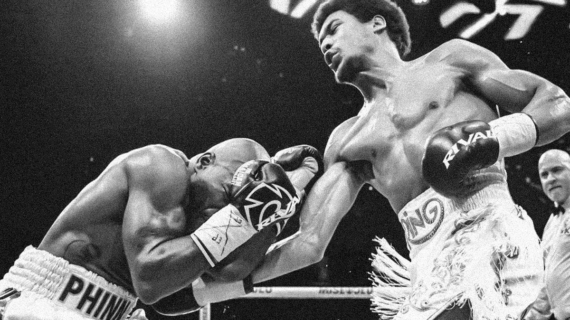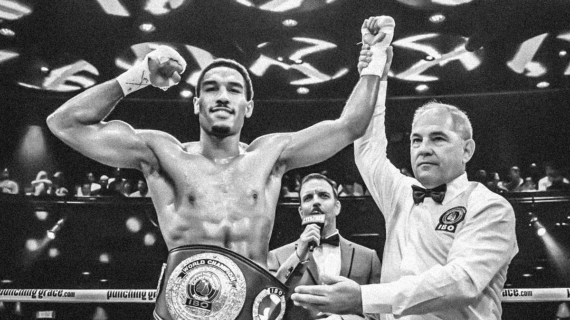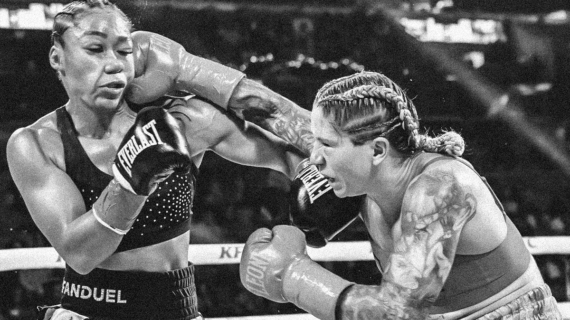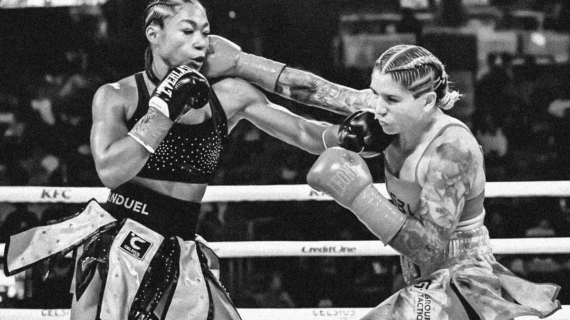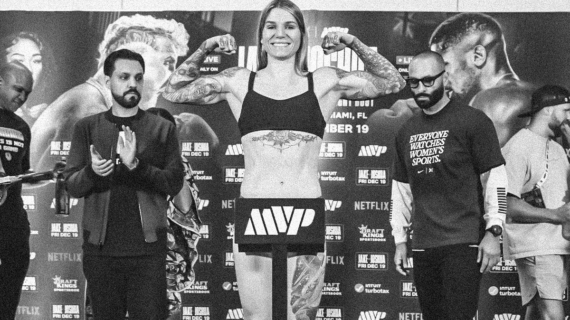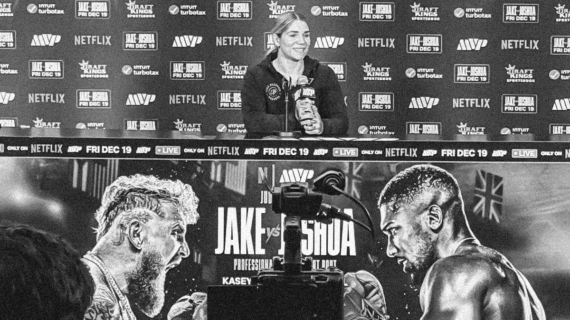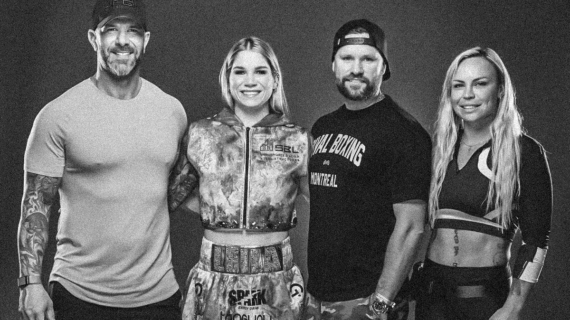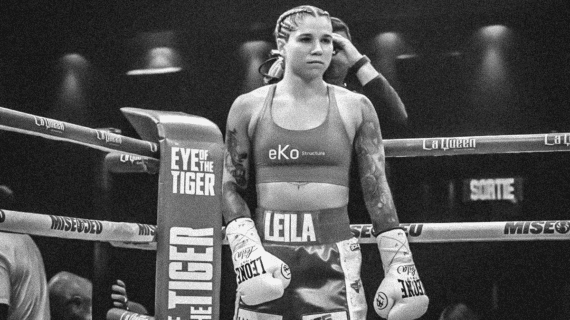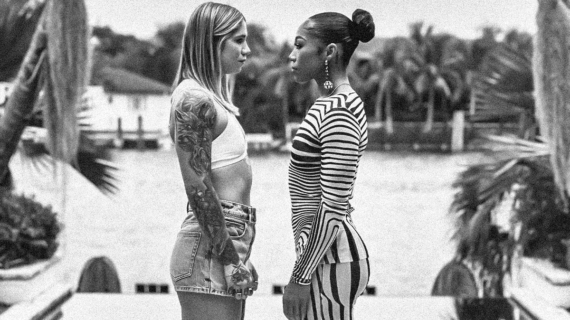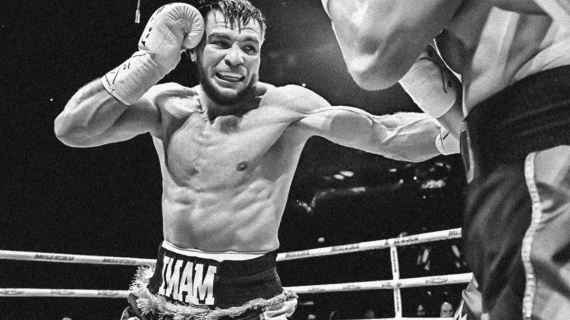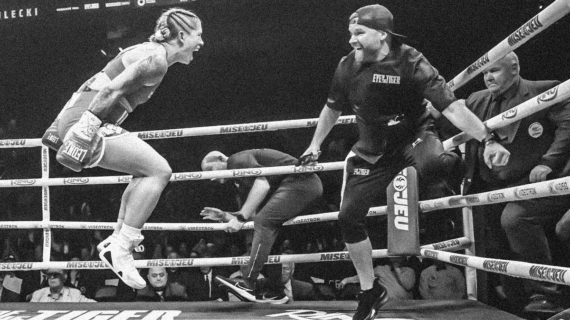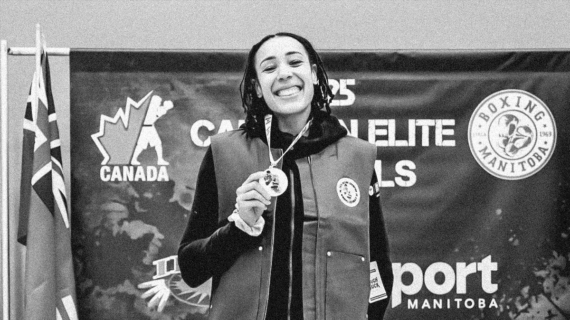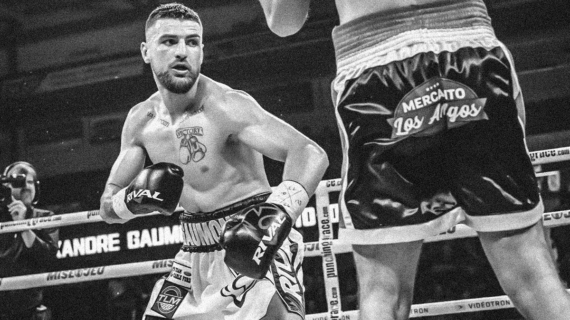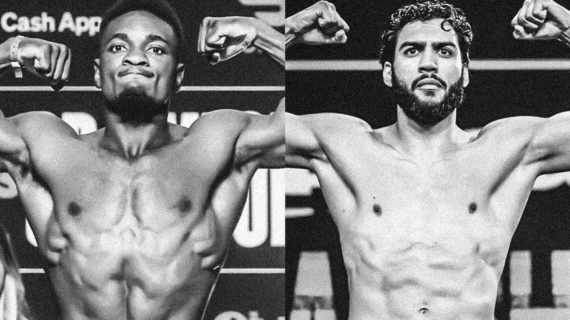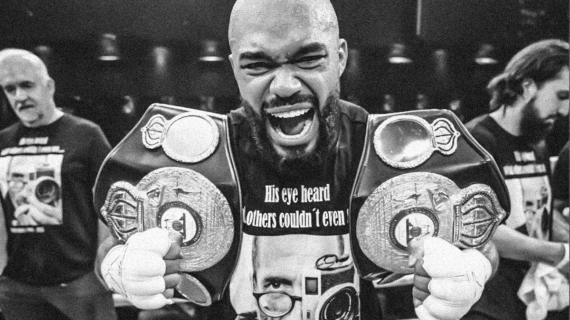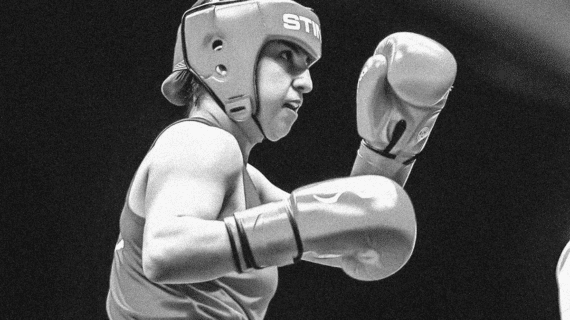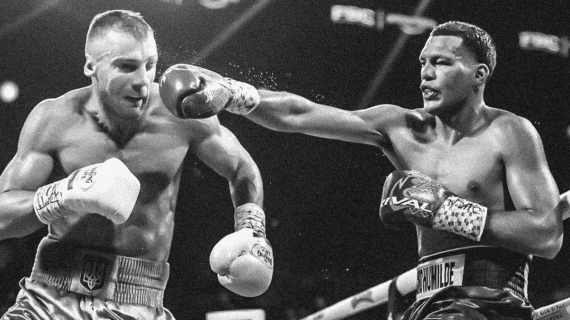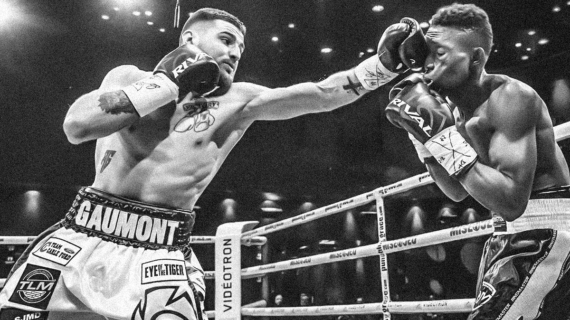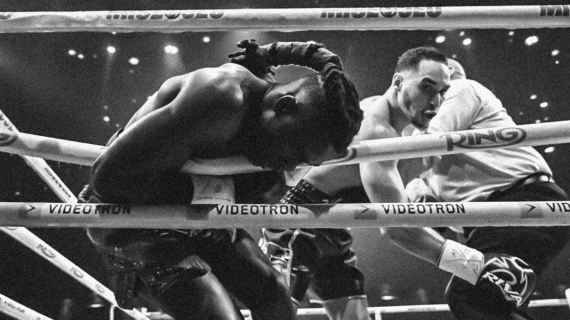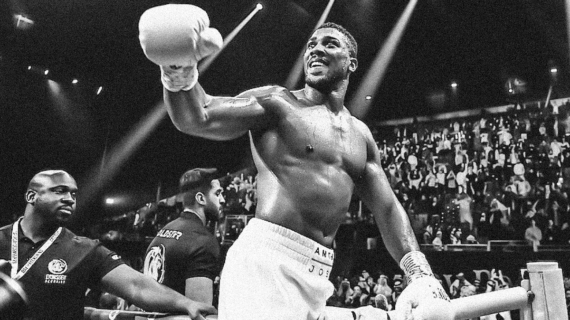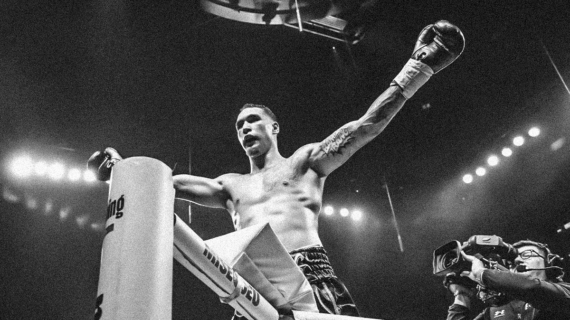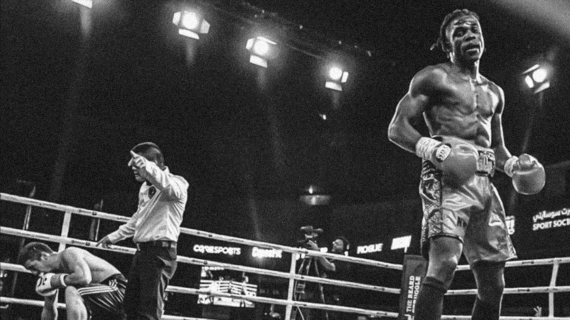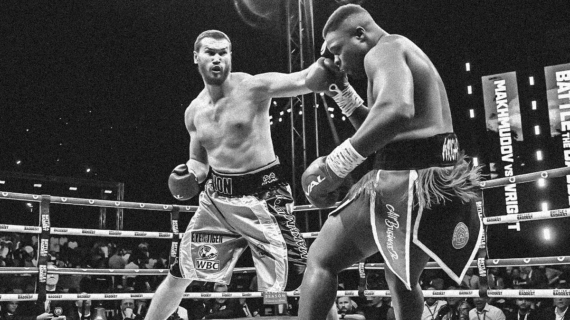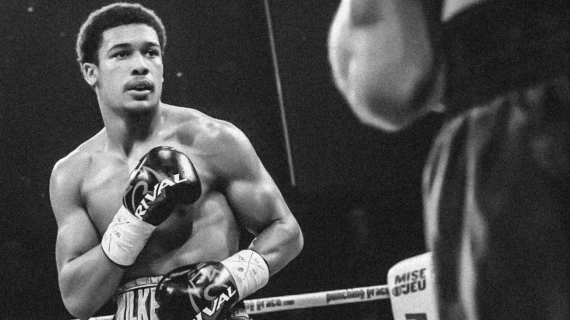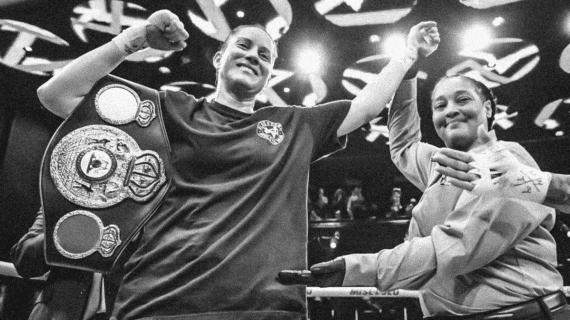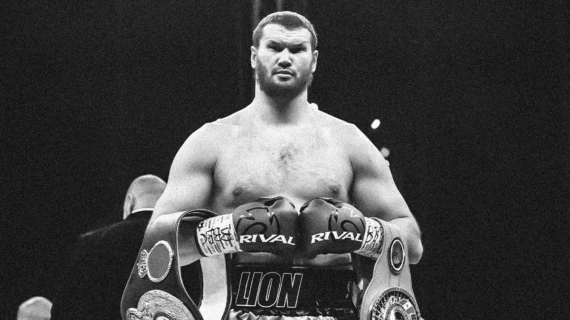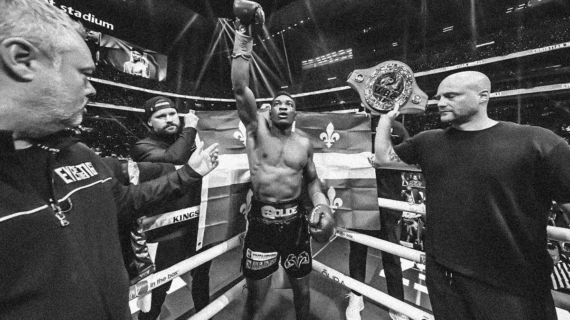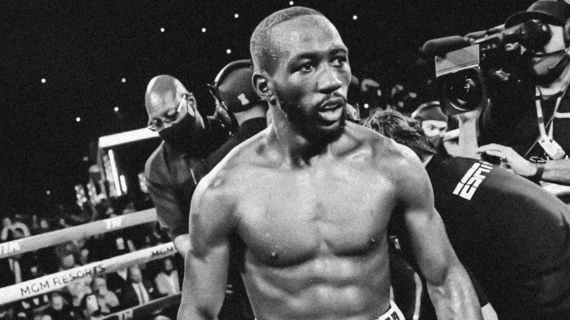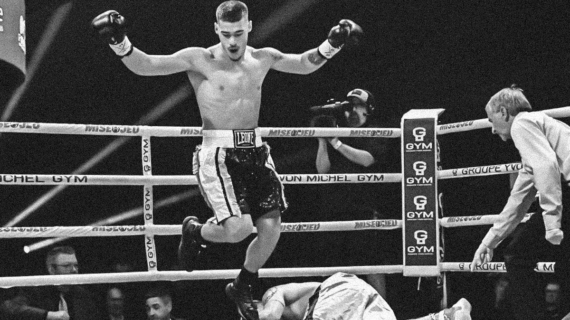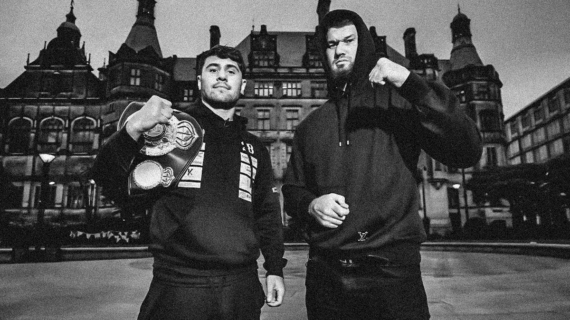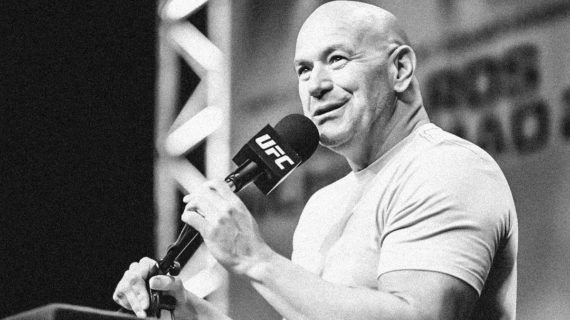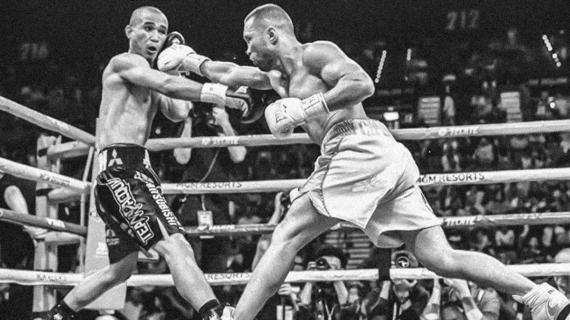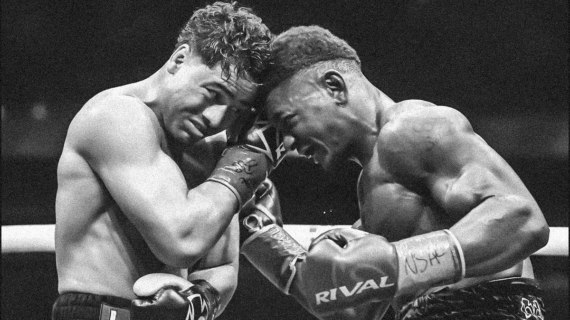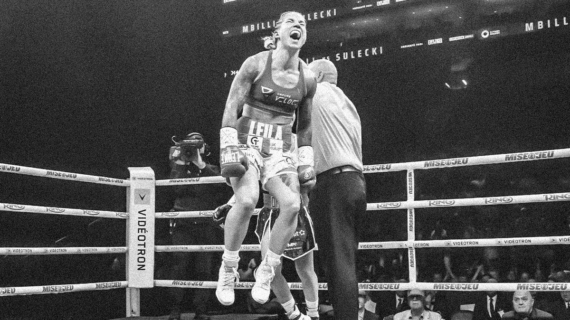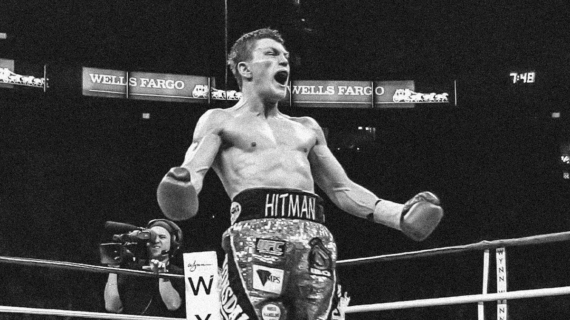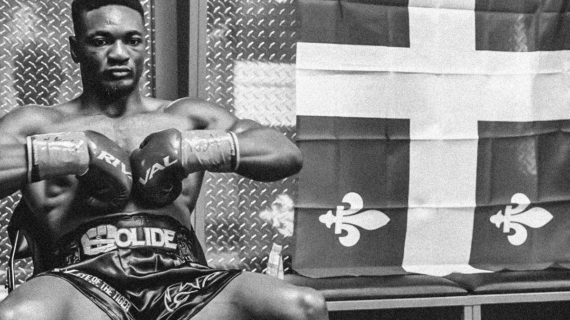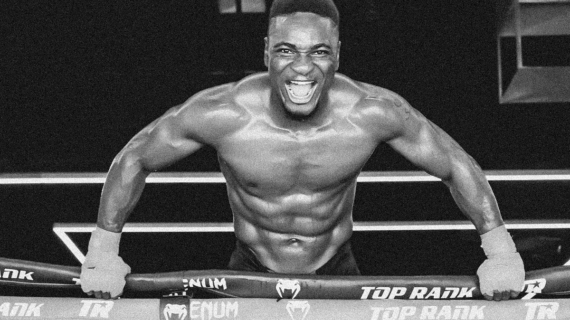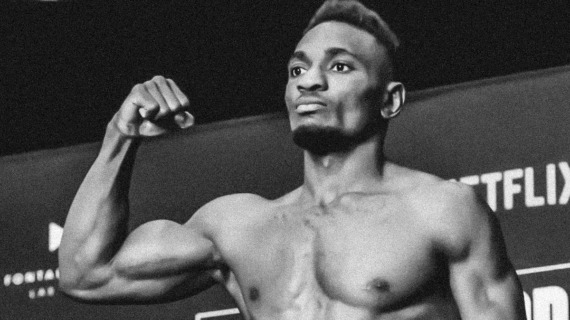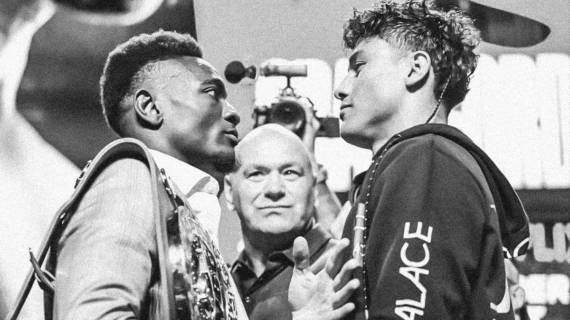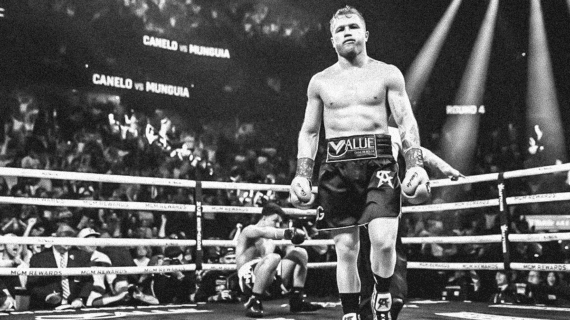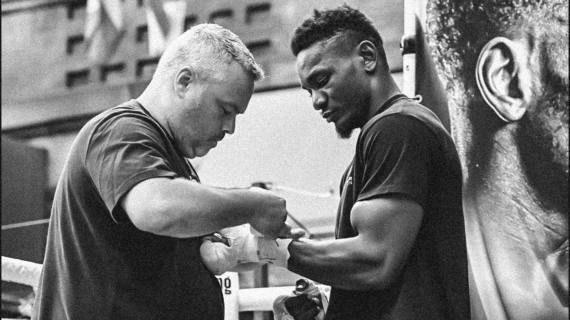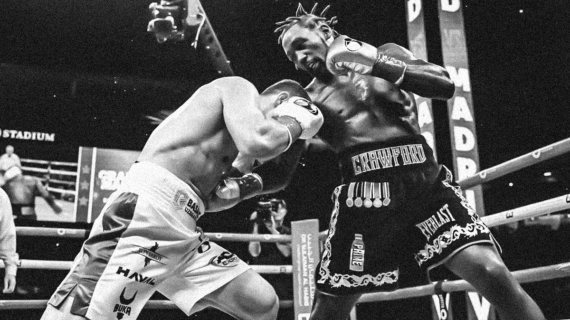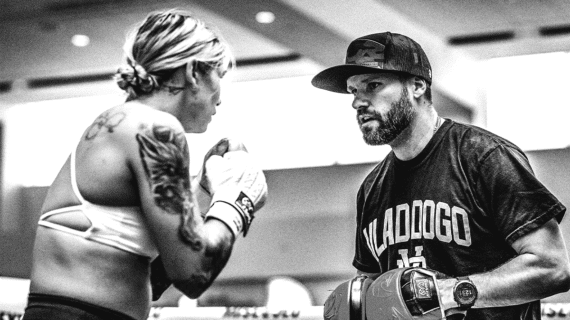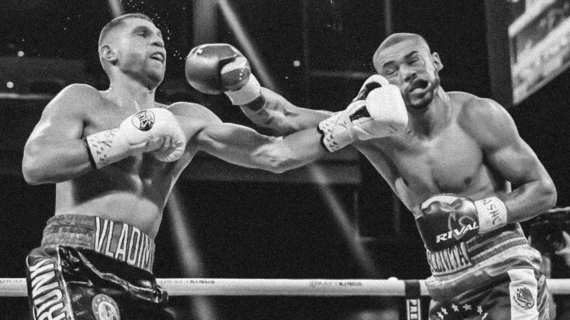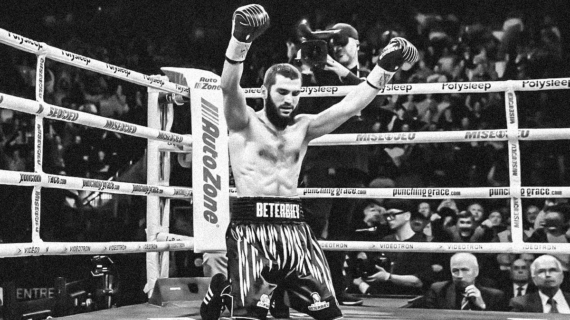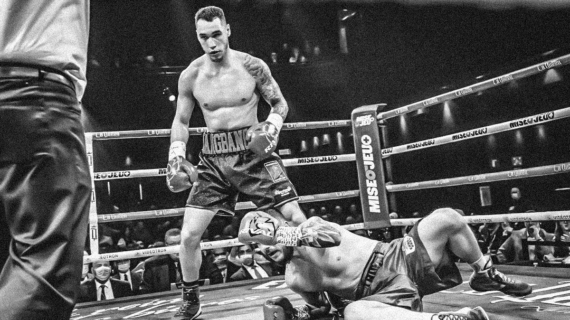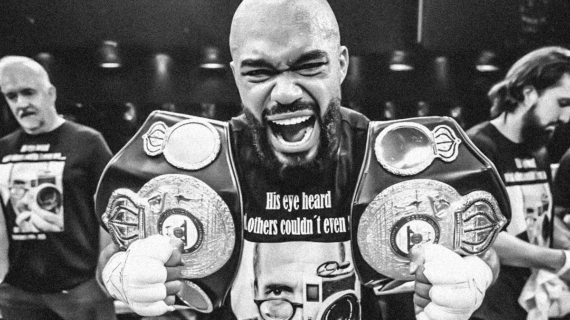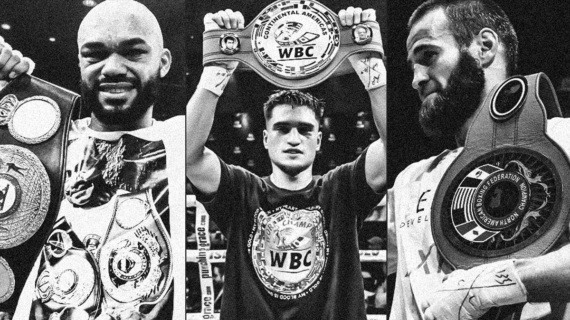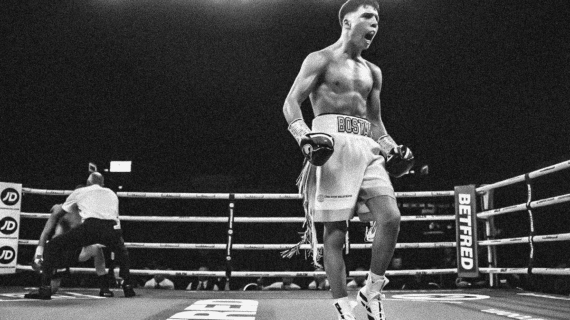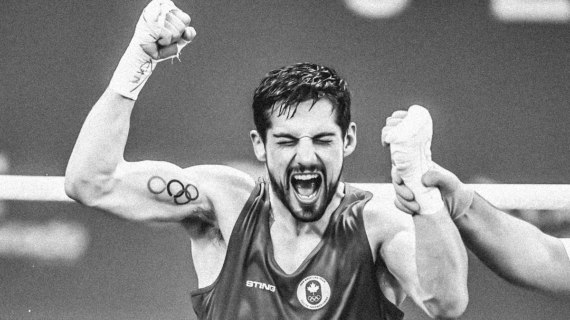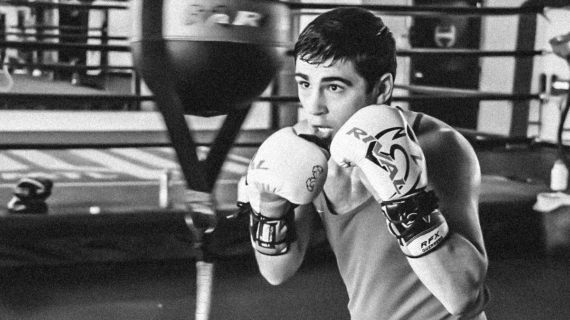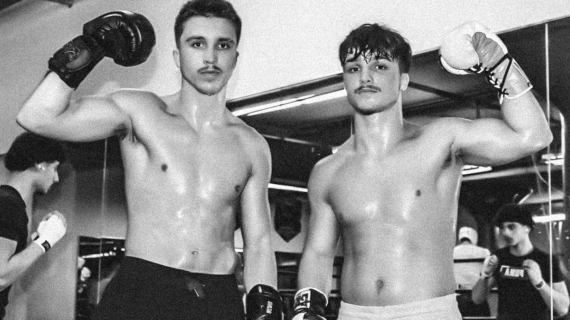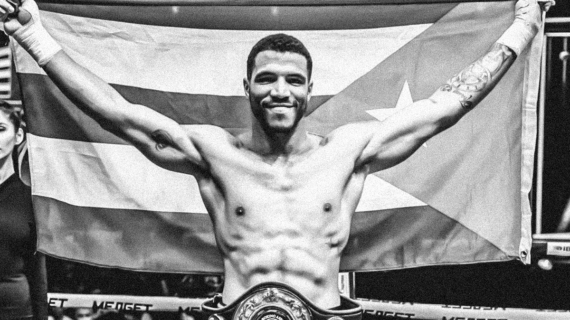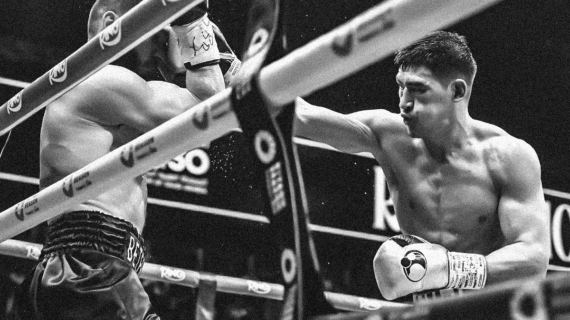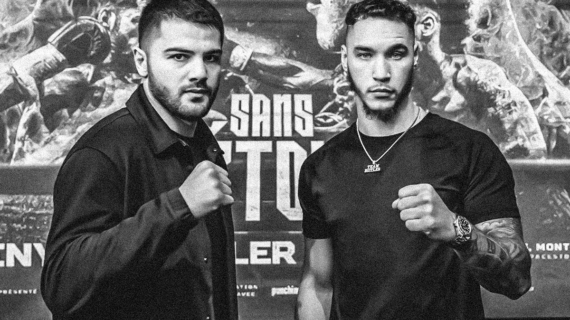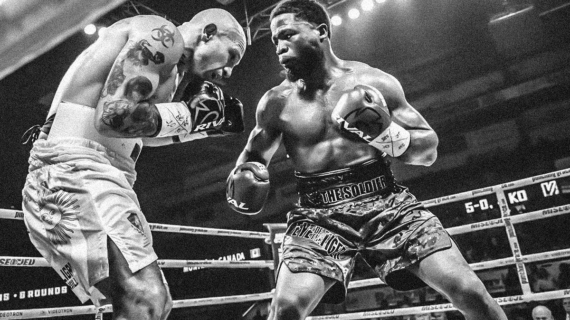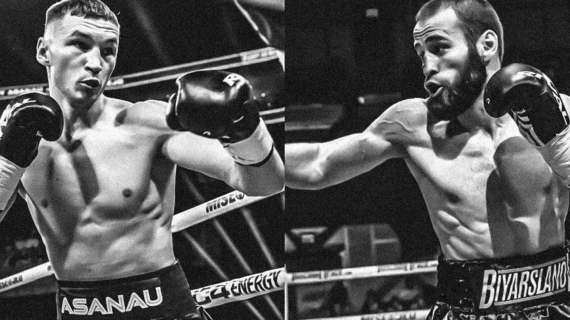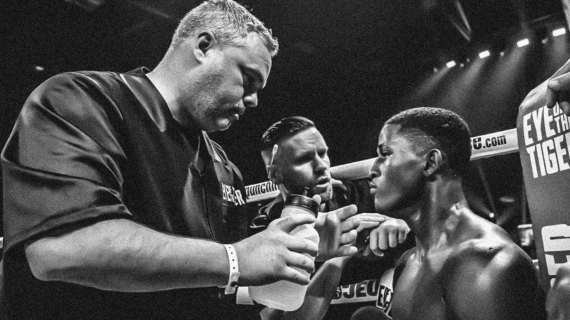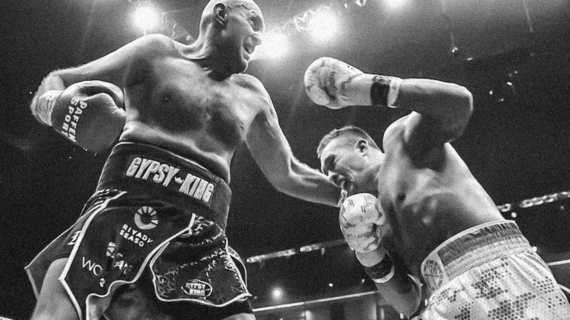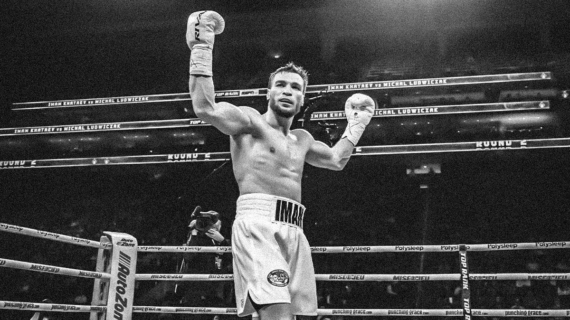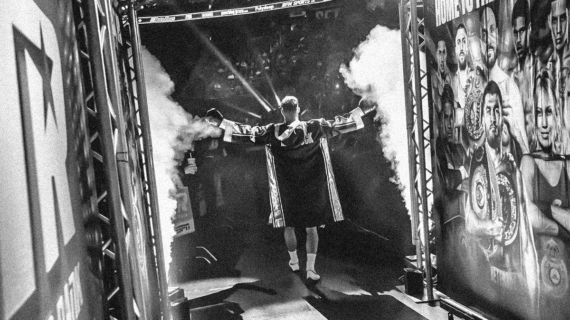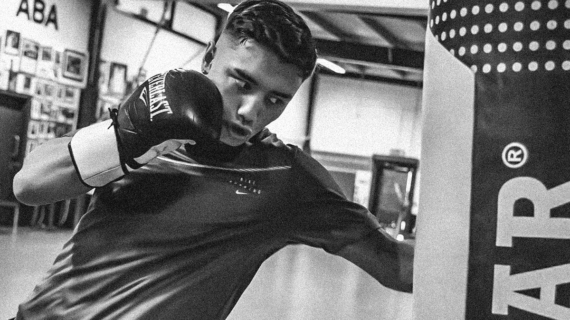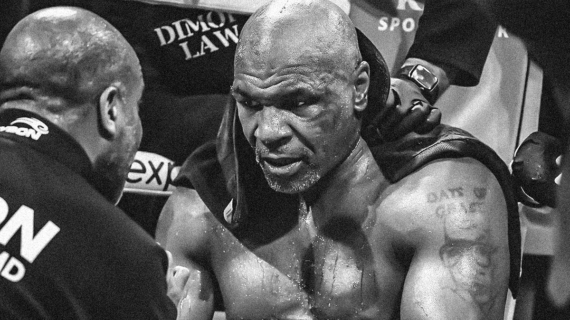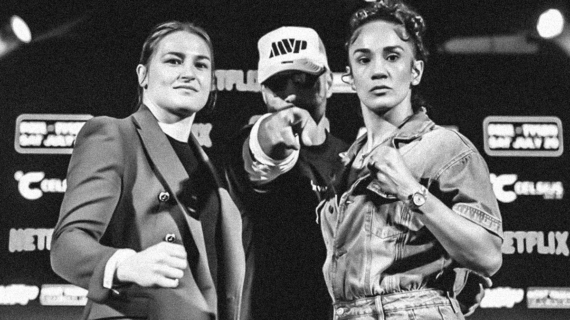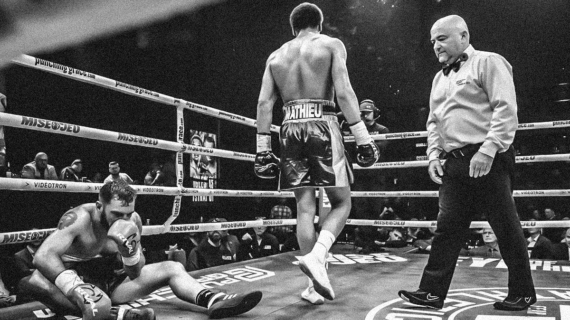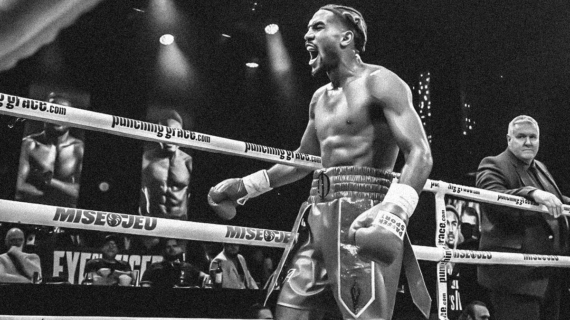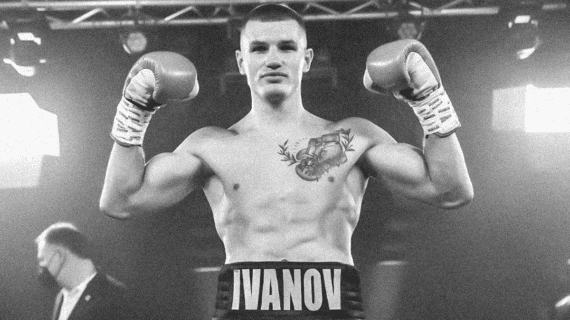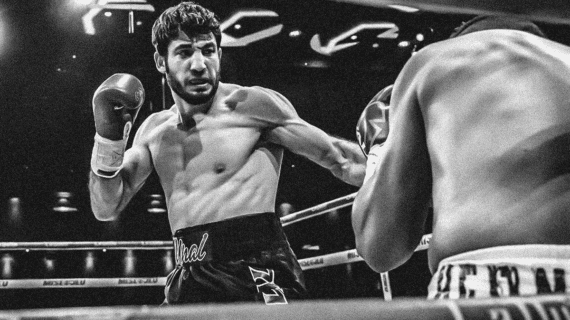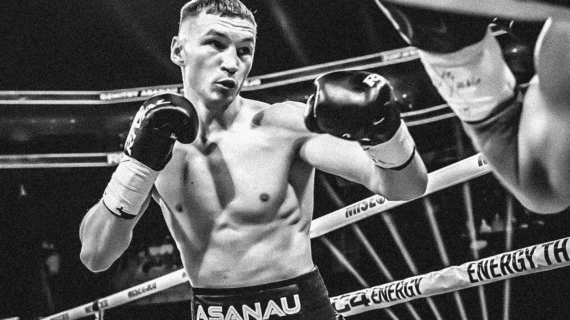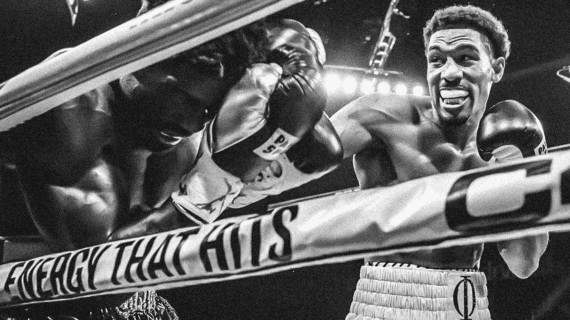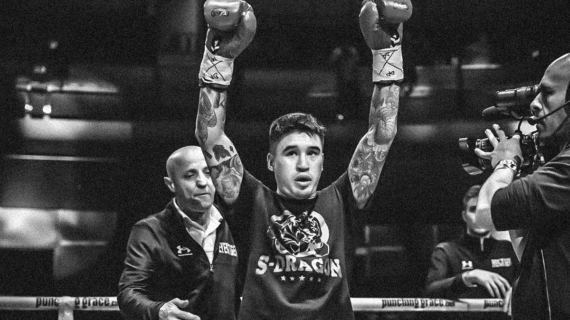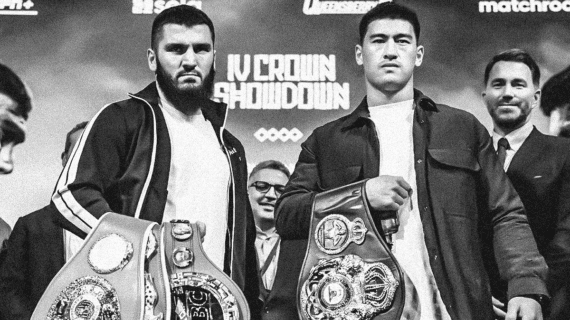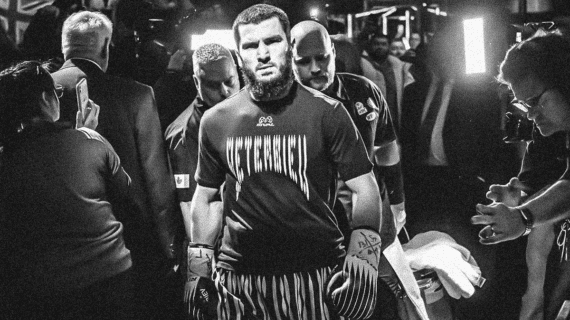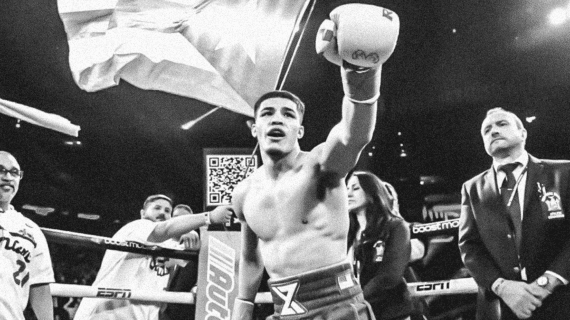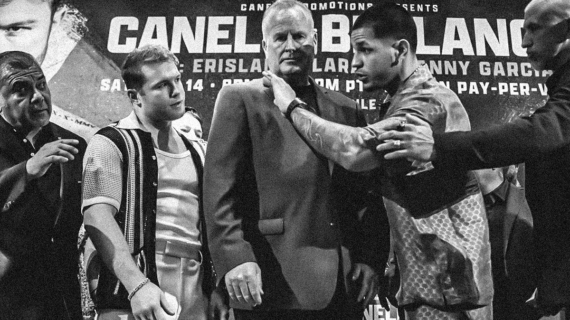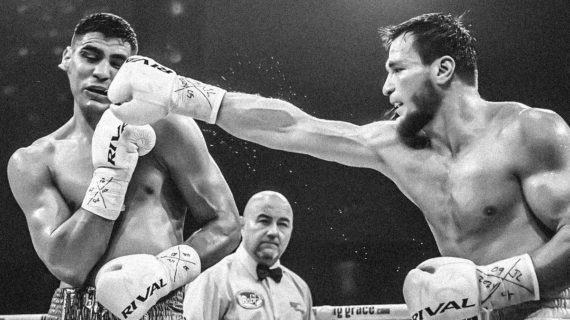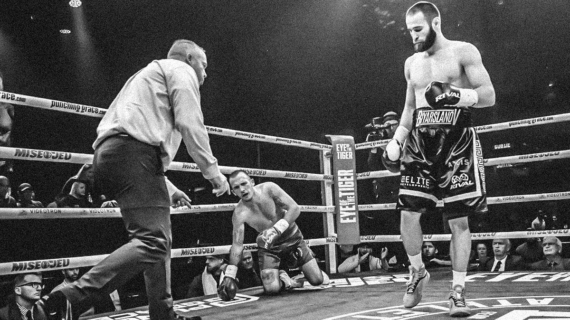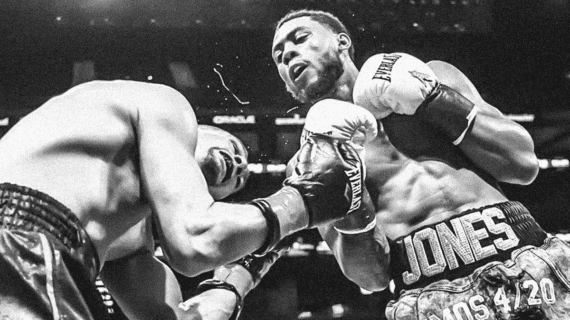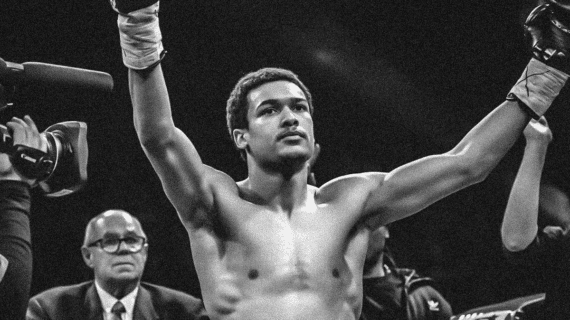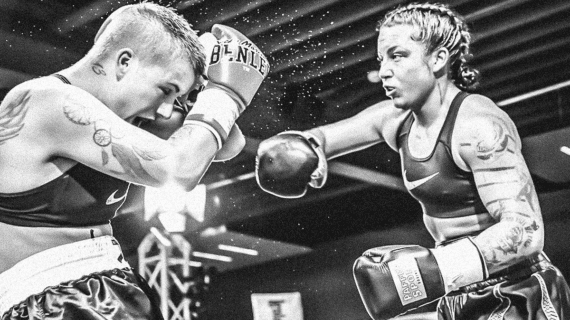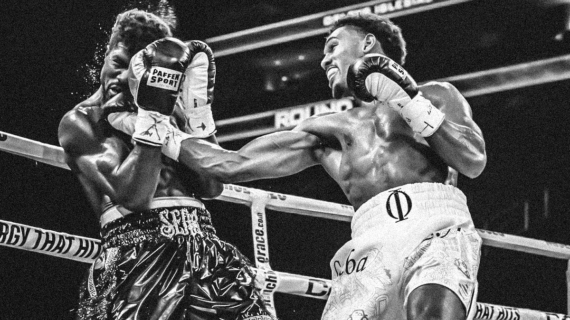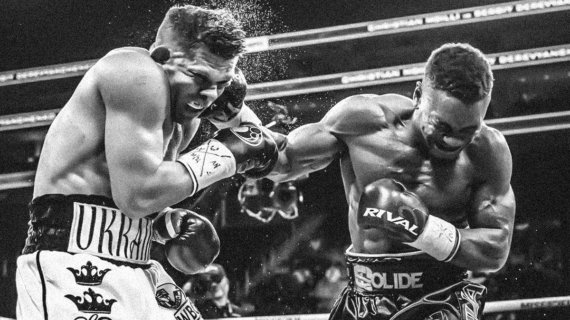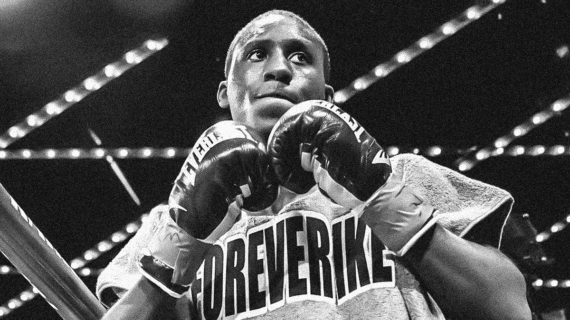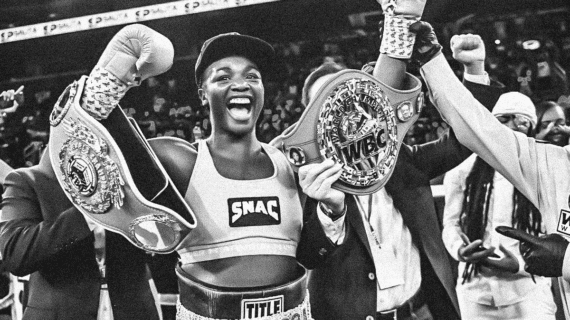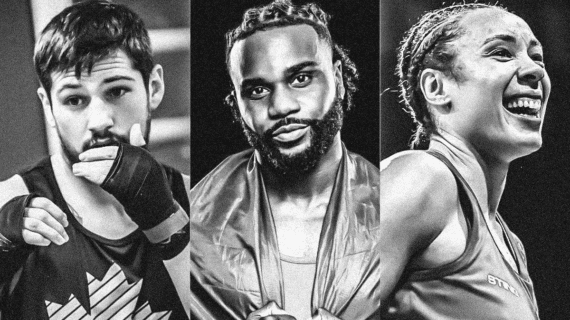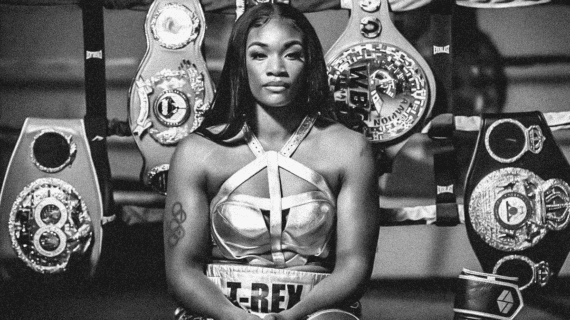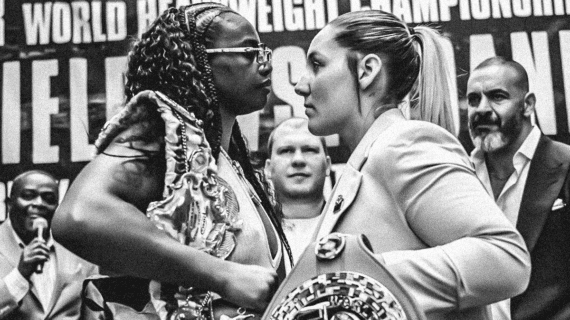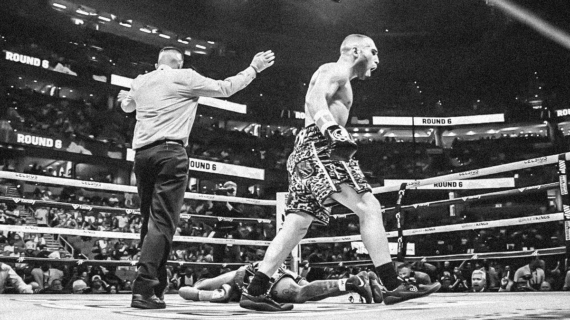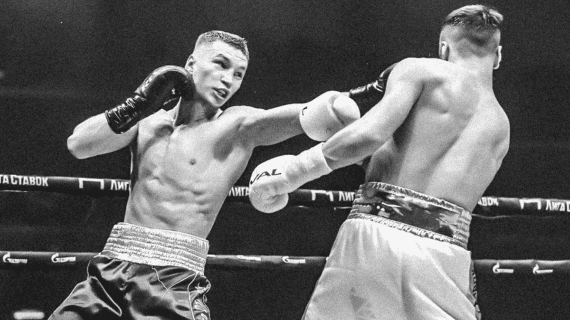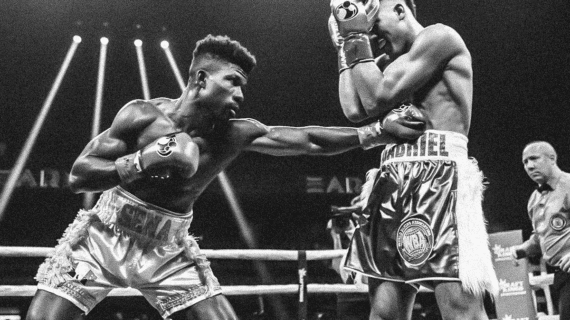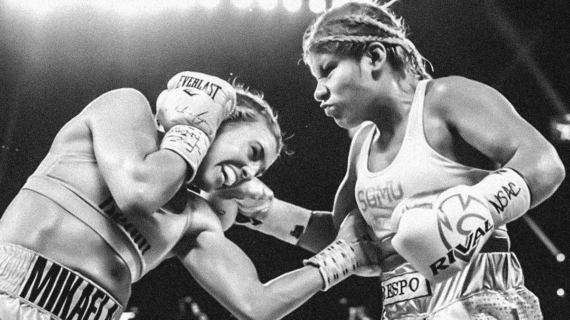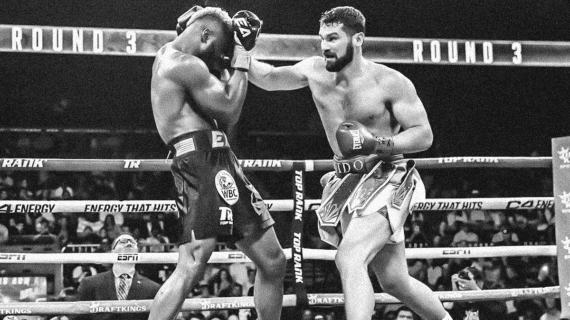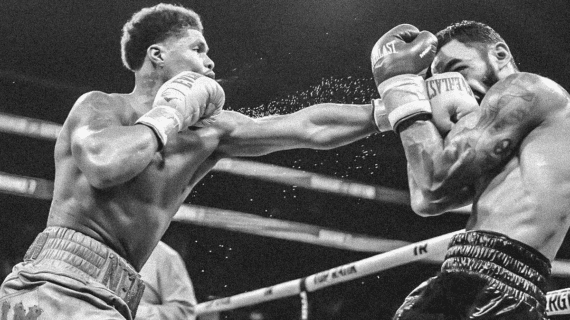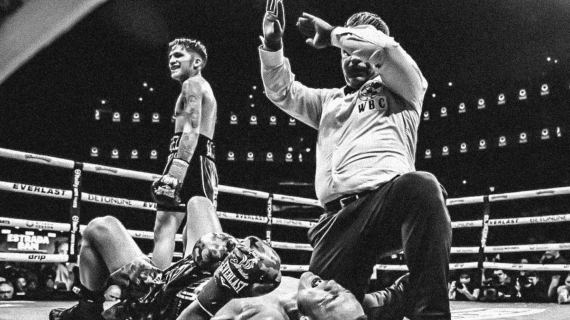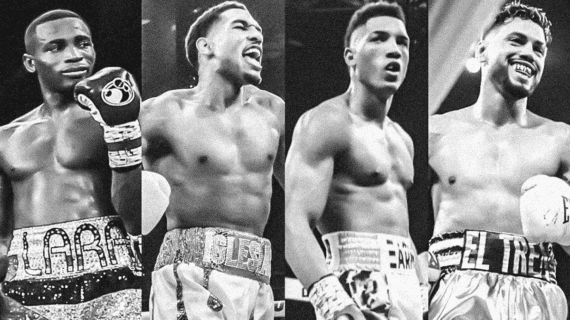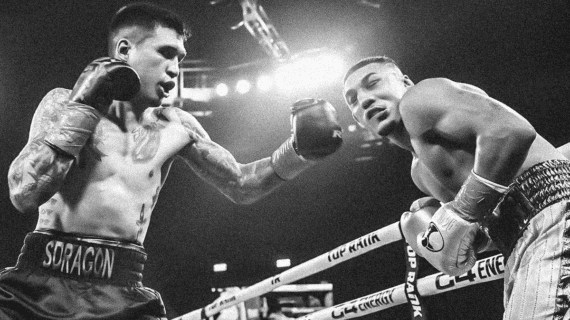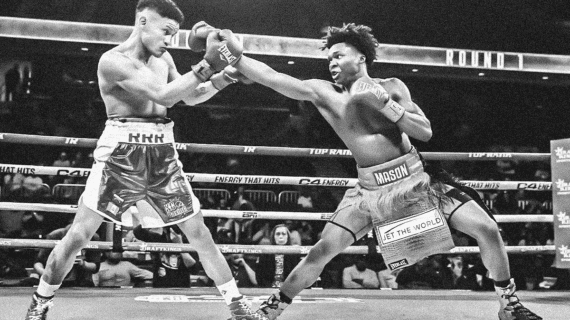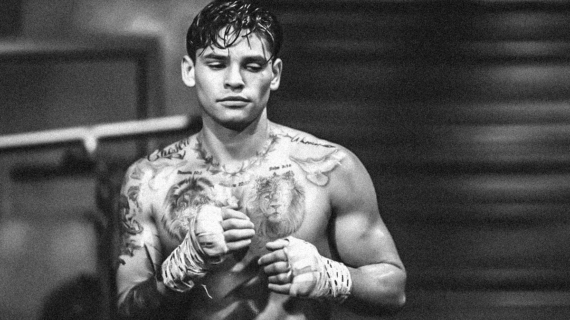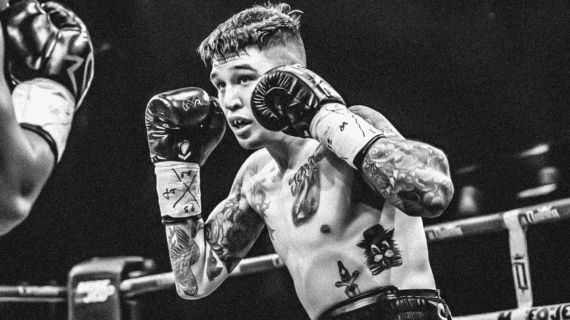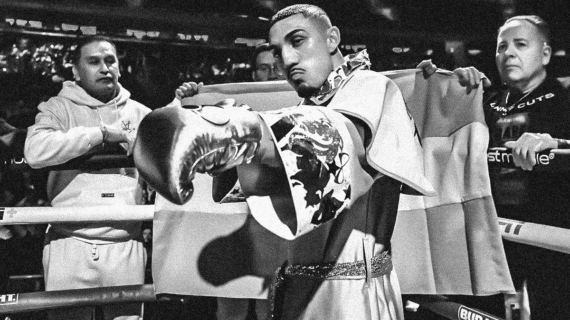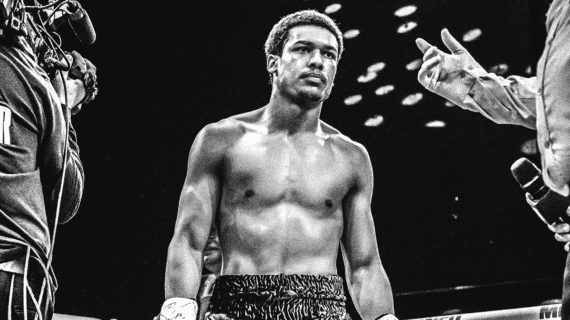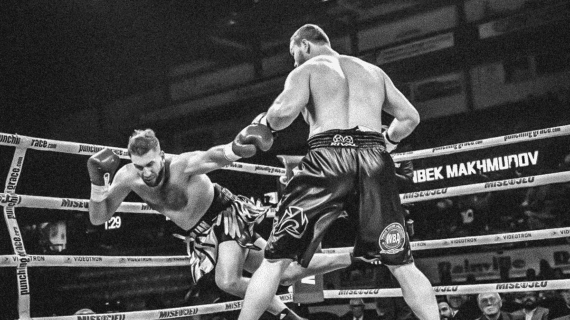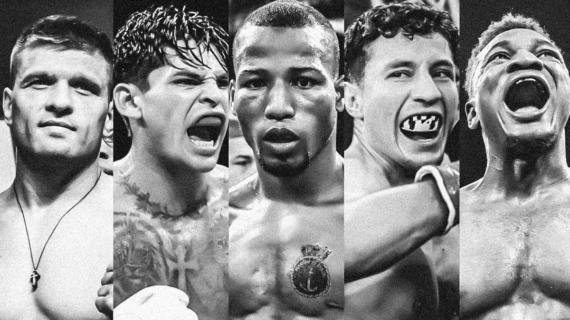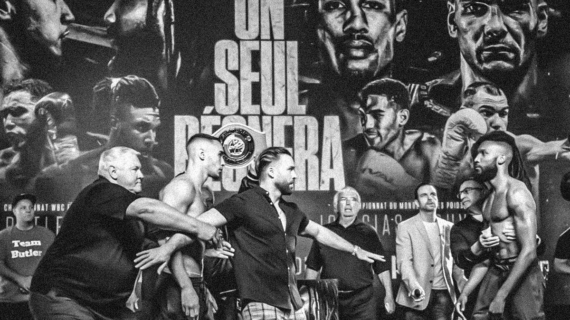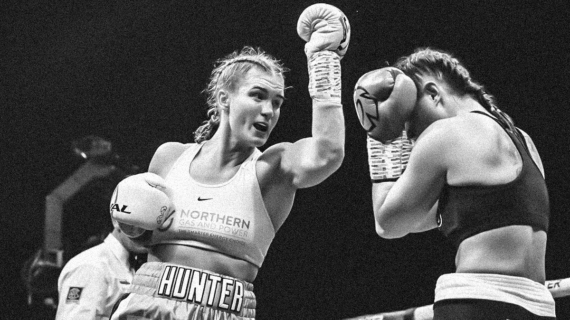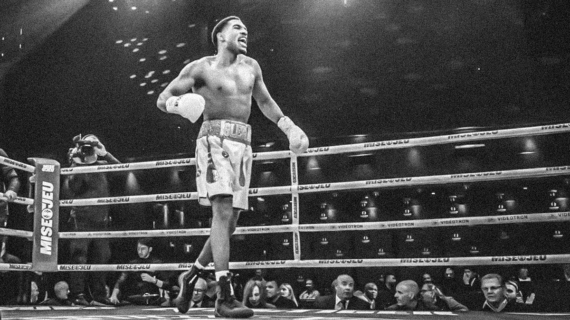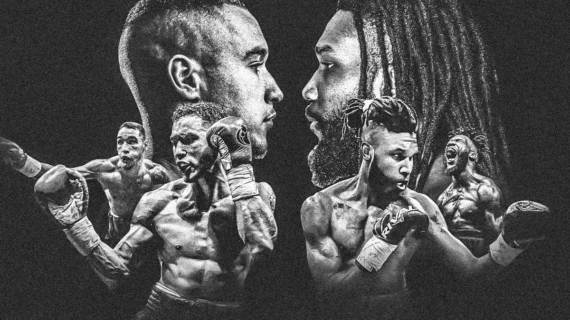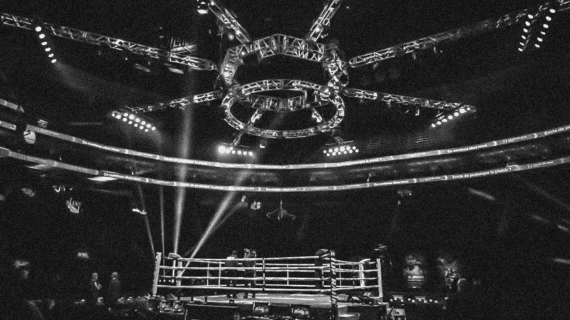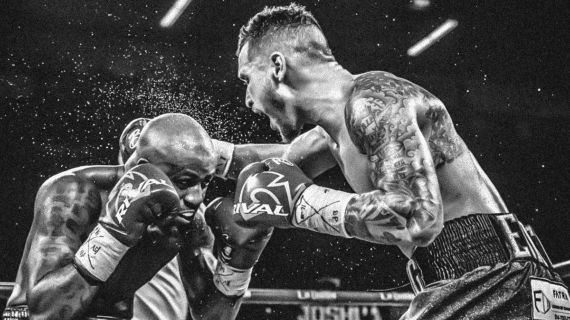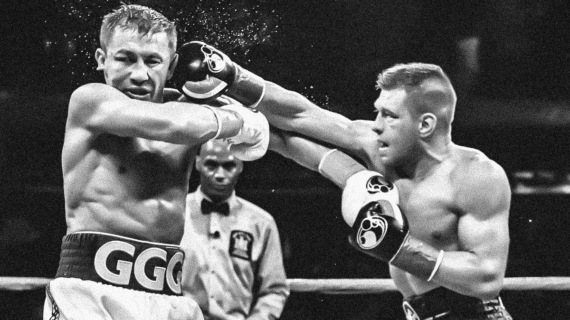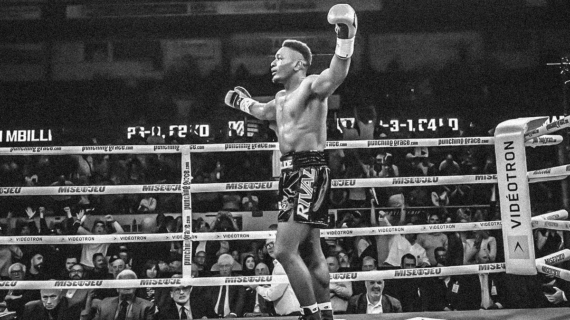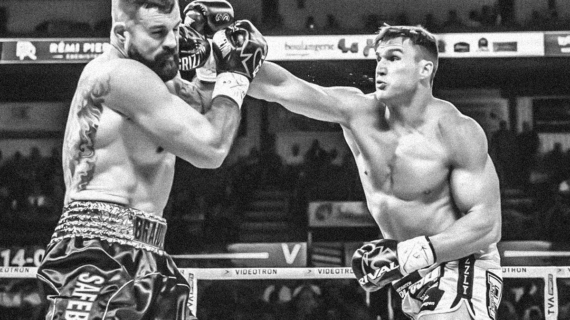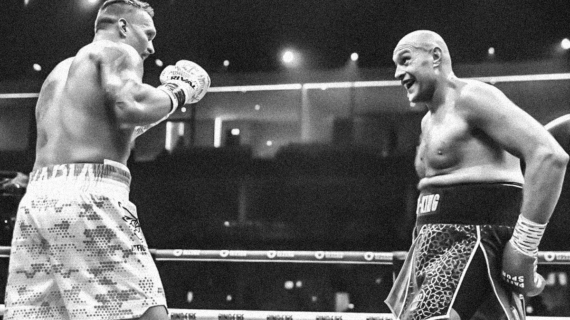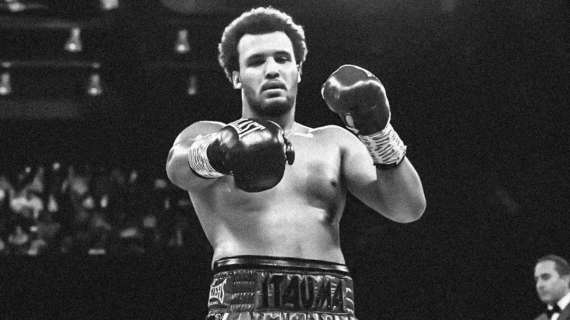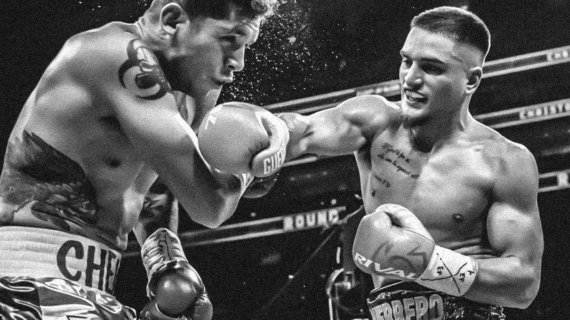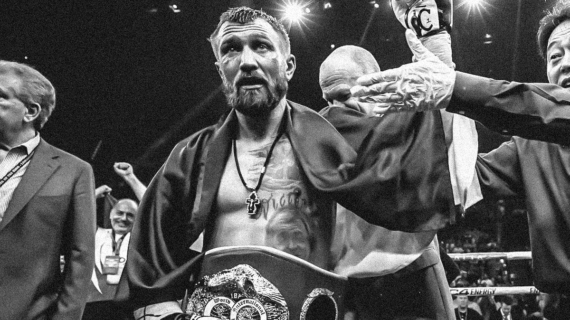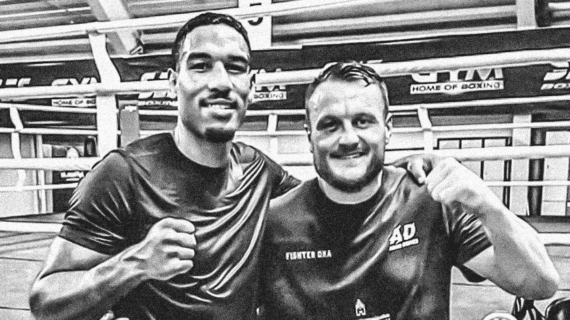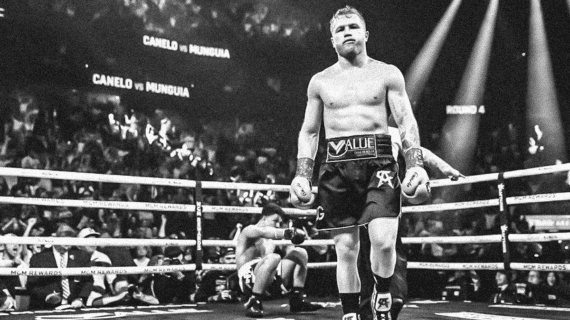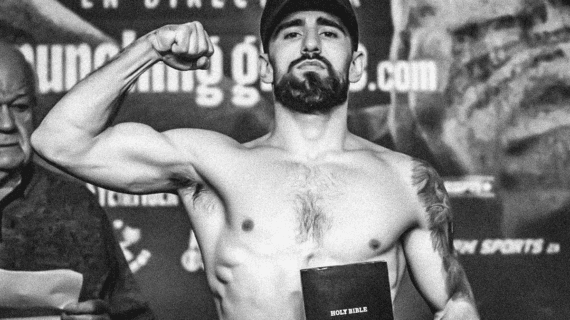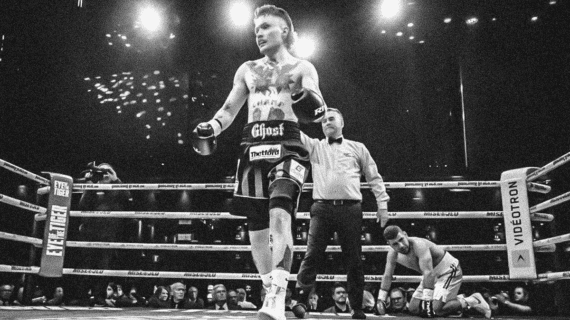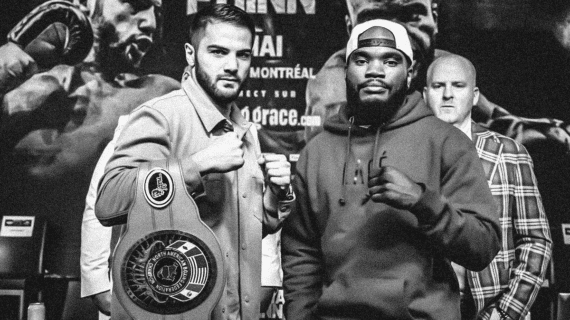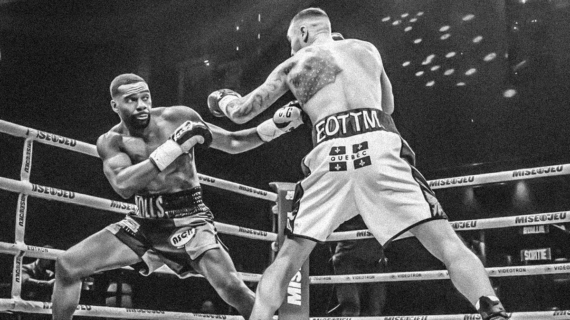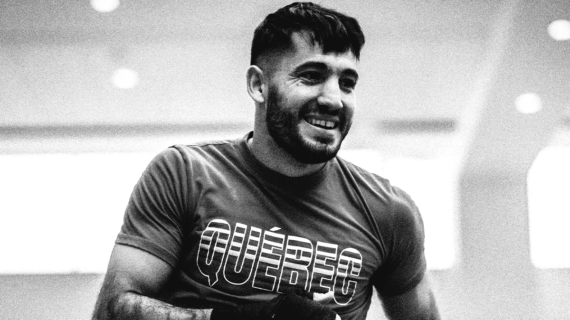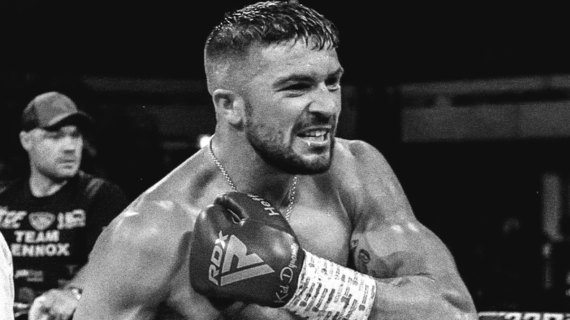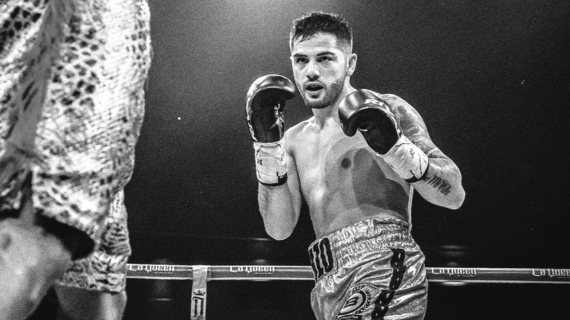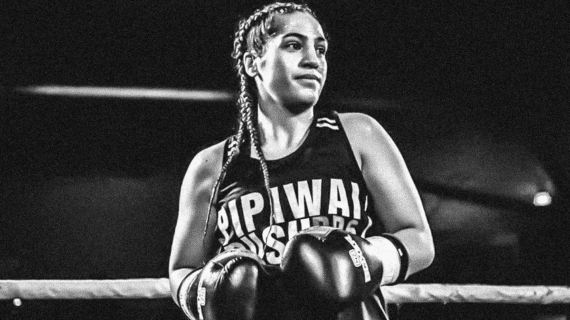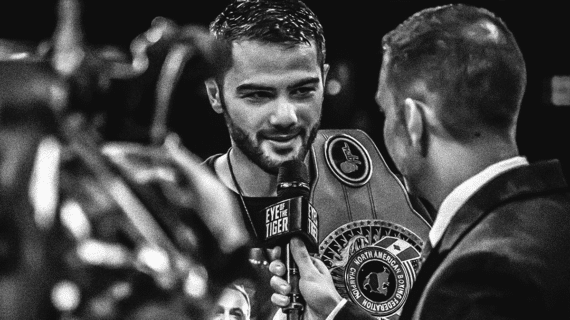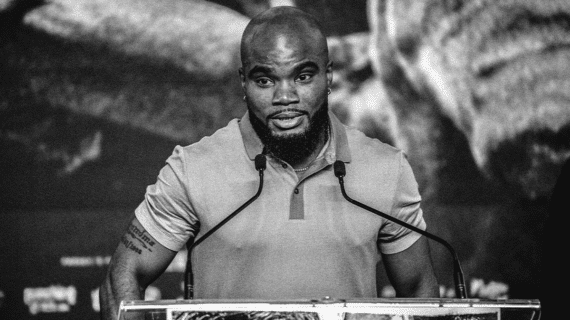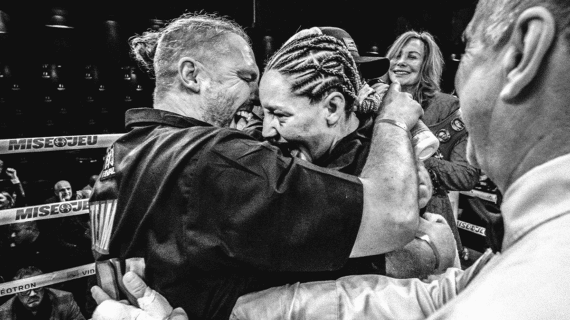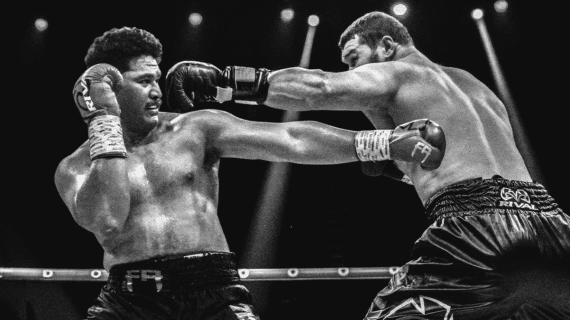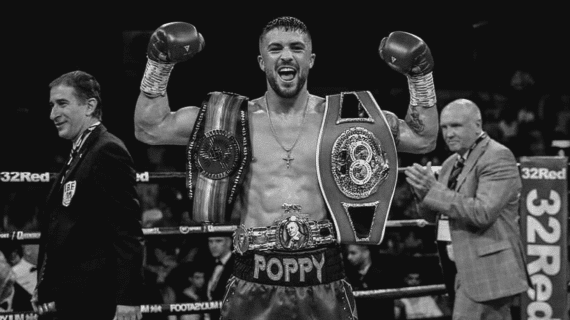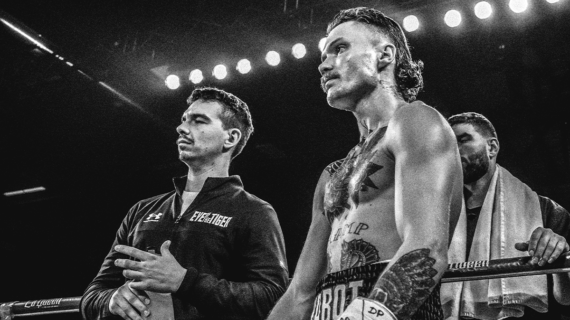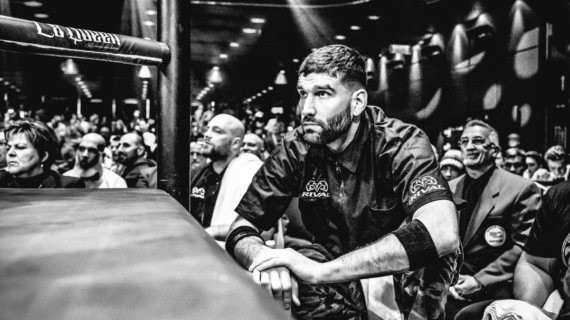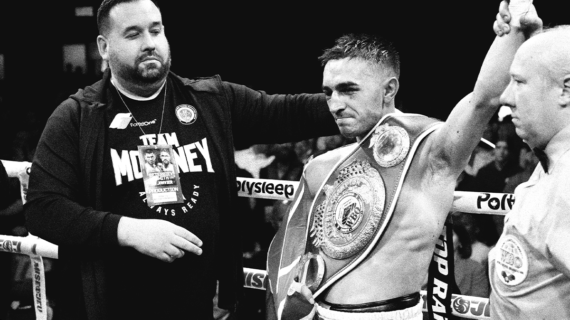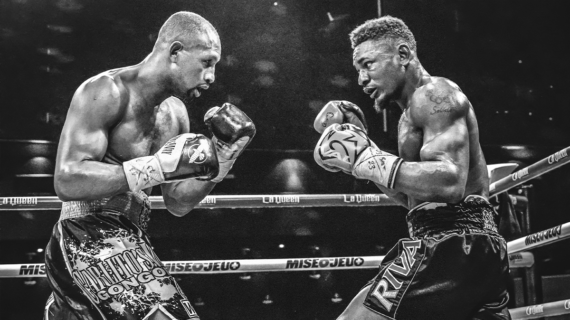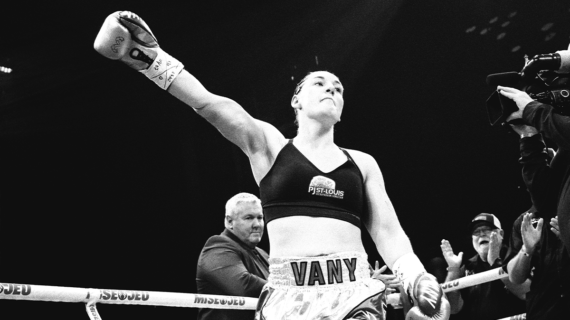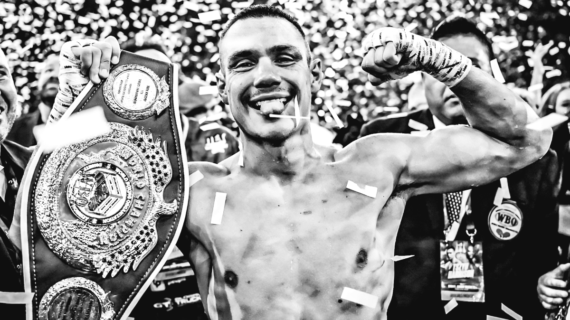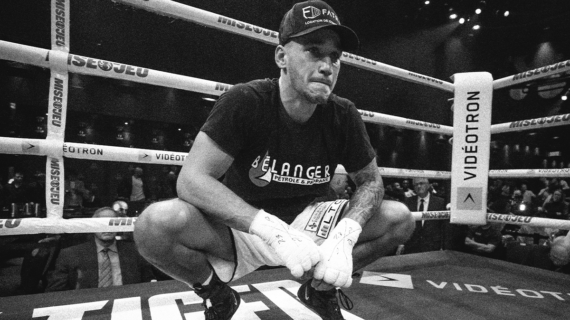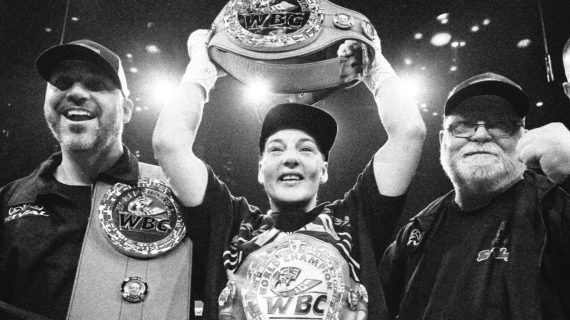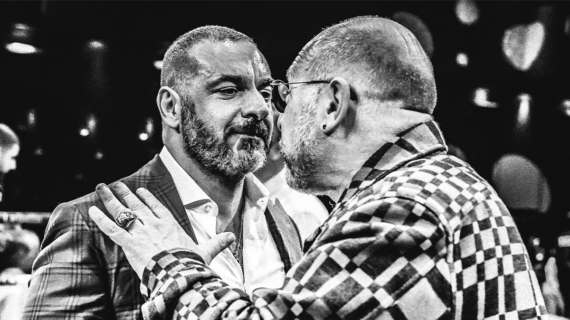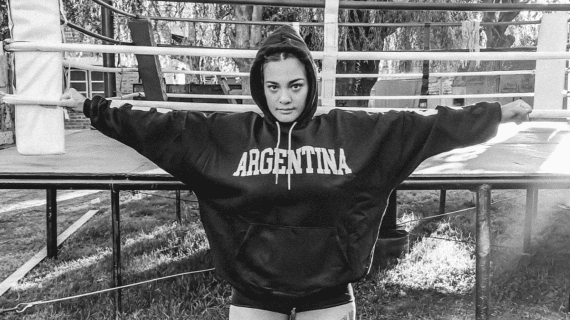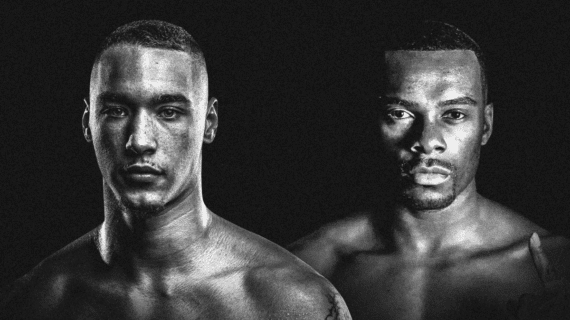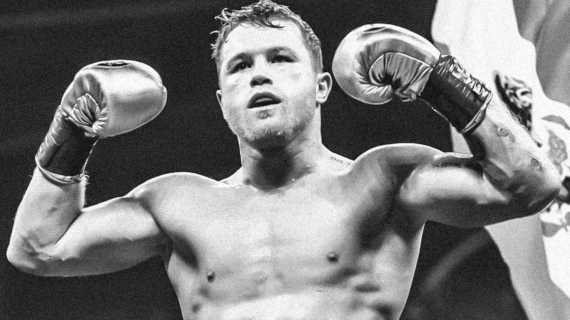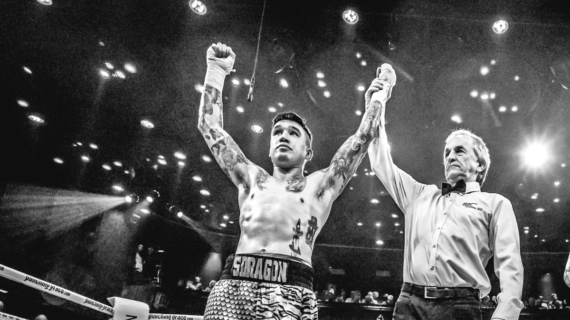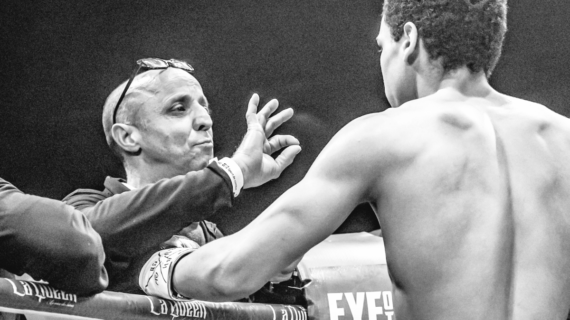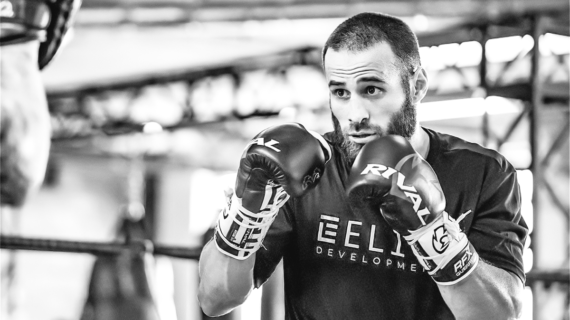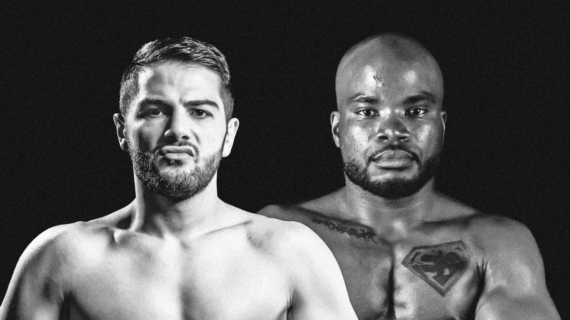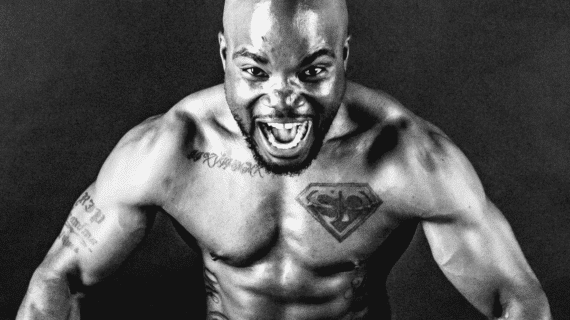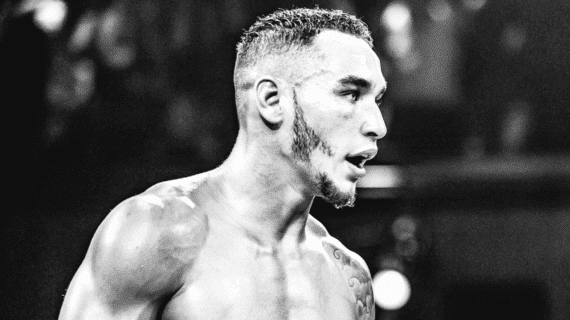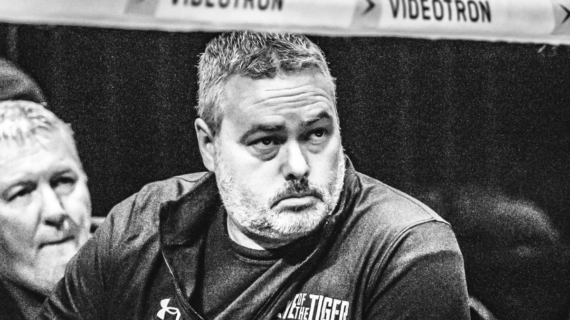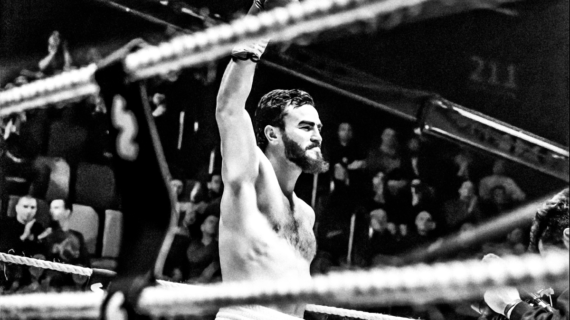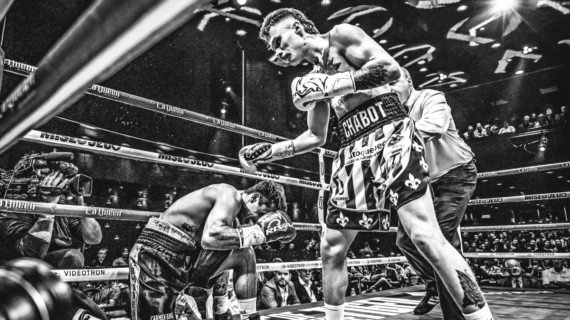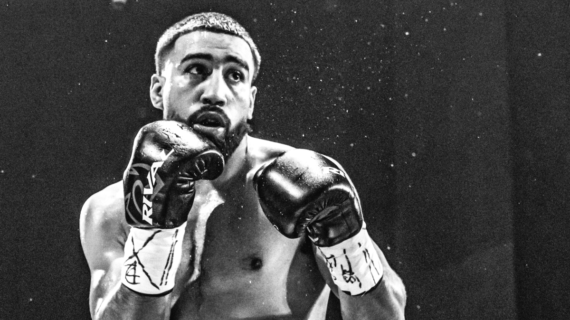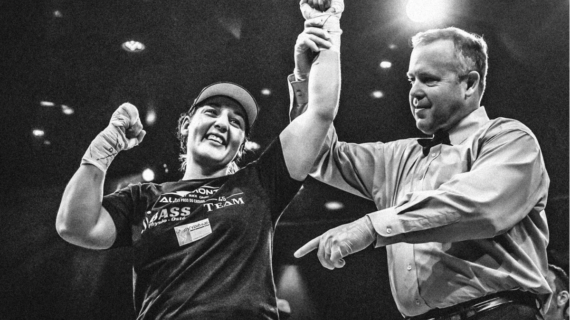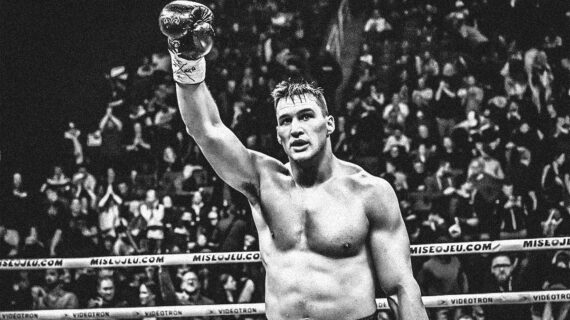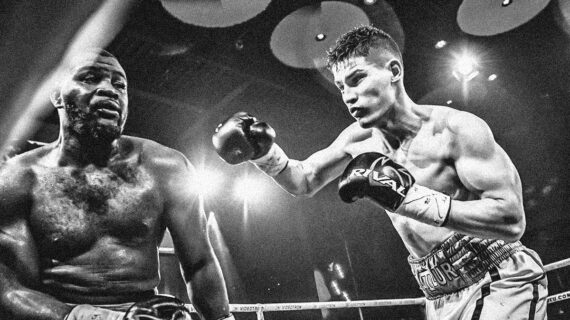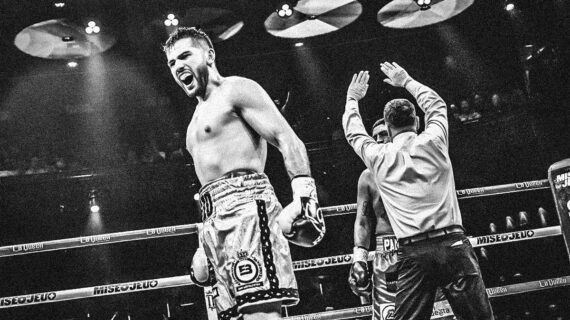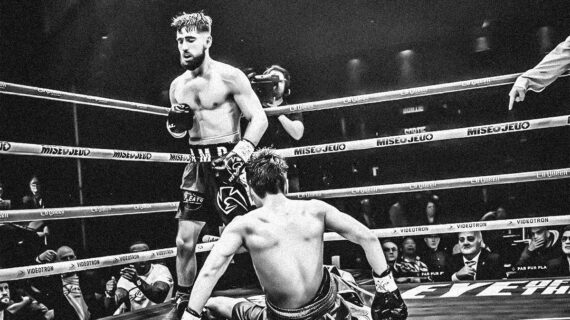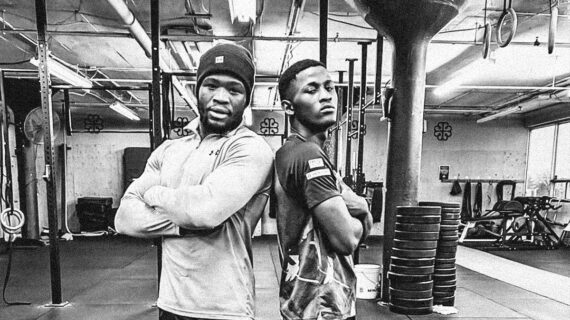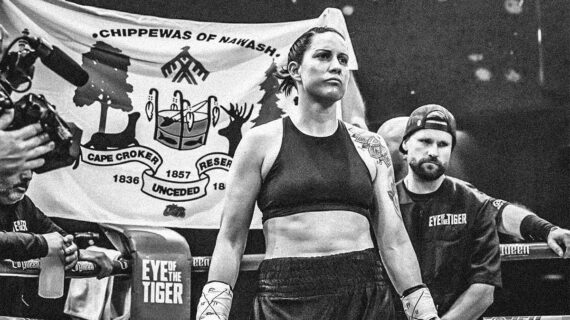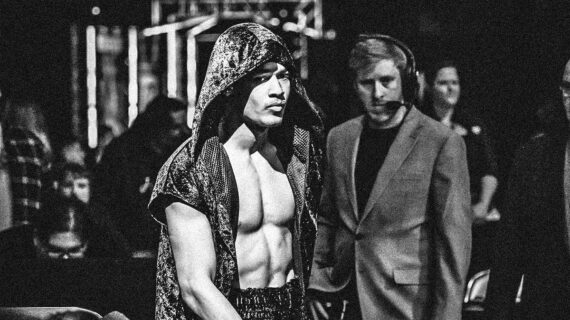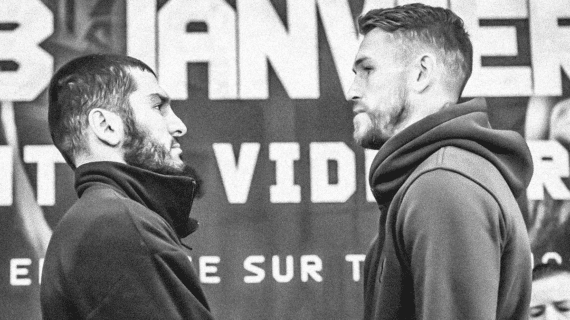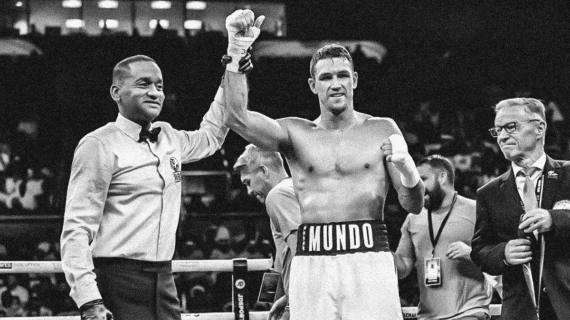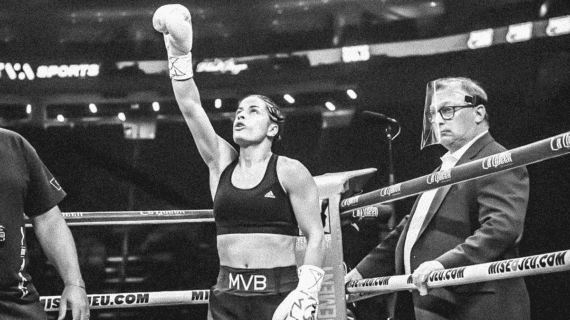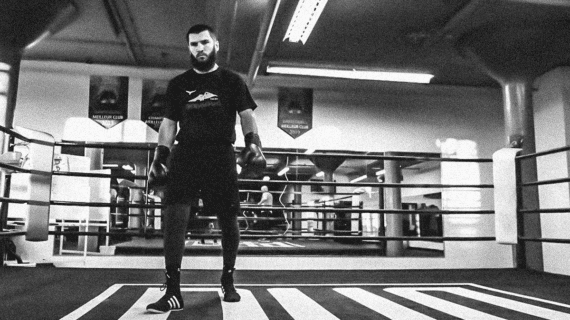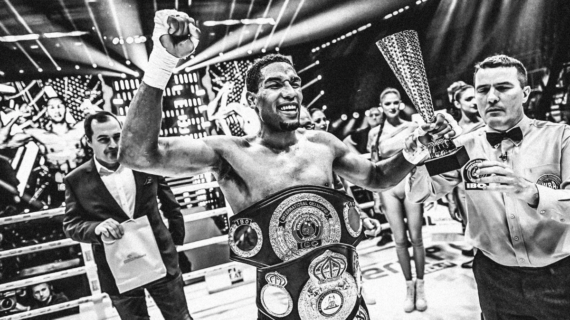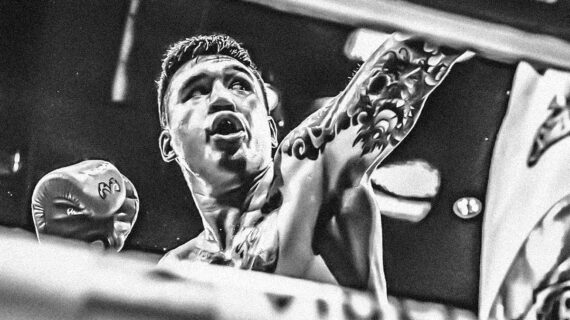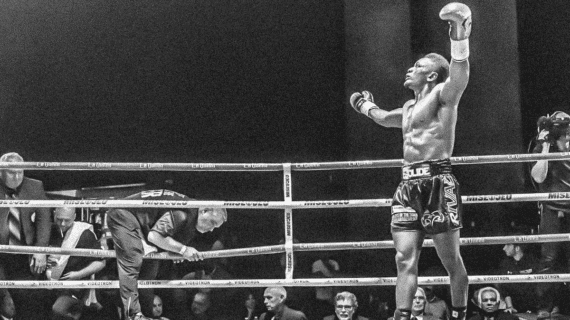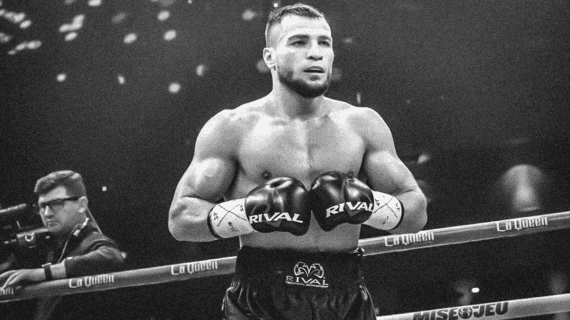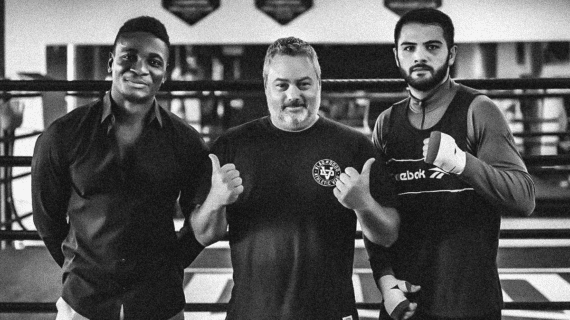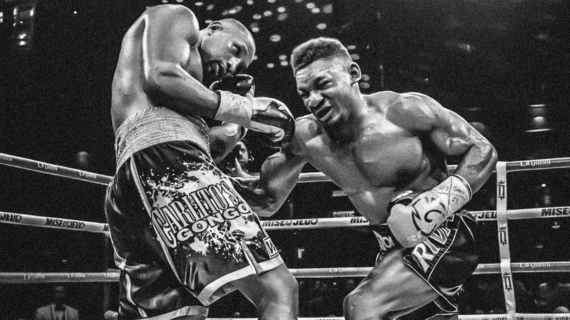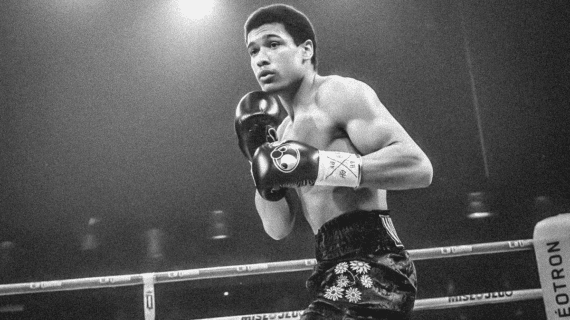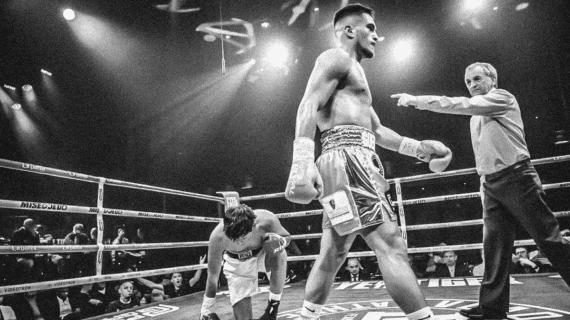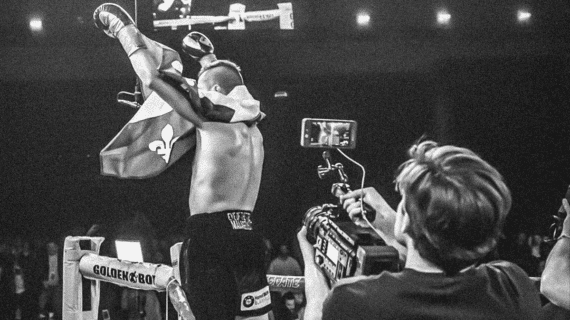Photo: Vincent Ethier – Christian ‘Solide’ Mbilli.
Does the name Christian Mbilli ring a bell? If yes, and you recognize him because he’s set to star in a fight for the WBC Continental Americas title on March 26 against Nadjib Mohammedi, then you have some knowledge. But do you really know him?
The story of this Cameroonian, exiled in France and then in Quebec, is more than inspiring. It’s the kind of story you could easily match with a photo under the definition of ‘resilience’ in any dictionary.
Firstly, being born in a poor city in Cameroon while his mother was just 15, he began life with two strikes against him. Perhaps because he initially played soccer before falling in love with boxing, but the pugilist never paid attention to baseball statistics.
‘Resilience is part of my roots’
‘I think resilience, as an African growing up in Africa, you automatically have it. You’re obliged when you’re born in a slightly difficult environment. My mother also had a very difficult past, and surely, if she hadn’t been resilient, neither she nor I would be where we are today. Resilience is part of my roots, and she transmitted it to me in her womb because she had to be very strong to give birth to me in that situation, in a small village. She endured the misery of Cameroon to build a life with all the complications it involves.’
From Africa, he still holds beautiful childhood memories despite his family’s limited means. Memories of running in the streets under the rain, playing games in the dust, and vacations in the village with family. He’s fortunate to hold onto these memories as life in his village, Akonolinga, is far from the conditions we know here. People there generally live without electricity, clean water, with earnings equivalent to a few dollars per day – if employed – and it’s often extended family members who help raise the children.
Skipping ahead in his journey, his life changed when his mother, working in a restaurant, met a French engineer. It was love at first sight and, more importantly, France represented a much brighter future for young Christian. So, his mother made the most heart-wrenching decision of her life: to leave for France with her new love, leaving her son behind while sorting out the paperwork to complete their immigration.
The processes, however, were lengthy and complex. While his mother and her partner fought through official procedures, Christian moved from house to house. Sometimes with an uncle, another time with an aunt, occasionally with grandparents; the young boy traversed them all. During this time, his mother visited once a year to ensure all was well, and she arranged to speak to him on the phone once a week. All this happened before the era of FaceTime and Messenger.
While securing all the rights to bring the teenager to France didn’t mean he’d have an easy life thereafter. Notably, due to their first home’s location.
‘My stepfather was a civil engineering construction worker and was often moving due to his job. When I arrived in France, he was constructing a highway near Montargis. Truth be told, the neighborhood where I lived was quite challenging. The social level wasn’t high. I had problems, whether it was fights or gaining respect. I didn’t have an older brother to defend me, so I had to do it alone throughout my adaptation,’ Mbilli recounted.
Moreover, he already had a good build, and in such an environment, anyone with a more imposing physique was challenged. He became a frequent target for others to prove themselves.
His life completely changed when he met a former school supervisor on his way to a boxing class. He invited the teenager and his friend to join and see how it went.
‘Honestly, I thought it would be an opportunity to perfect my defense, something I needed to improve. I entered and immediately felt at home. It completely changed my life because it was as if I had found my calling. That’s what I wanted to do, and the results appeared from one day to the next.’
Indeed, after just five months of training at the gym, he secured third place in the French Championship, a remarkable feat.
The school of life
However, this success didn’t mean he didn’t struggle. On the contrary.
“Before, I used to play soccer, but it was more about having a good time with my friends. When I started boxing, I obviously got hit, didn’t know how to do it, lacked the technique. So, I got hurt by people smaller and lighter than me. I told myself, ‘OK, I’ll come back, get revenge, do more.’ And you come back, you improve, and you learn. Boxing is a bit like the school of life, where when you succeed, you come out understanding that you have to work. You can only rely on yourself, if you cheat, you’ll be at fault, and it will backfire on you. I got there through perseverance and hard work, even though I already had physical ability and some of this sport in my genes.”
With all the sacrifices made by Marie Thérèse, his mother, the announcement of her son’s new passion was not easy to digest. All this for him to end up in a sport that is still dangerous?
“It hurt her and she didn’t want it. Fortunately, my dad was willing to give me permission because for her, it was out of the question. Seeing her child move from soccer to boxing and taking hits, it must be complicated for a mother. She sees it as a tough, dangerous sport, and I’m sure she’ll be very happy the day I announce that I’m quitting boxing,” admitted the 26-year-old athlete.
At the same time, despite the blows he received, boxing turned out to be therapy for him.
“I am deeply convinced that practicing this sport, either you have issues to resolve within yourself, or it becomes a form of personal therapy. I’m not one to complain, but it’s definitely not easy for a young African man to come to the West. You inevitably face difficulties, whether it’s racism, cultural change; there’s this little something that tells you, ‘OK, I have to fight.’ So, it became a therapy, and paradoxically, I chose this path to get out of my life, as a stepping stone to do something else,” he explained.
“I know where I come from, and I don’t want to go back there. I know where I want to go and that I want a better life. My mother has always said that what she does, it’s for us, for us to have a better life than hers. That’s why I want to honor her, to tell her that all the sacrifices weren’t made for nothing.”
After overcoming all these obstacles, Mbilli obviously wishes for victories and titles, but the most important thing will always be to maintain the pleasure he finds in boxing.
“I have the desire to be a world champion, but above all, I want to keep that pleasure, to preserve that flame that tells me I’m happy with what I’m doing. If there comes a time when that pleasure fades, I’ll move on to something else.”
Mbilli (20-0-0, 18 KOs) will step back into the ring on March 26 to defend his World Boxing Council (WBC) Continental title against the Frenchman Mohammedi (44-8-0, 27 KOs) at the Montreal Casino.

